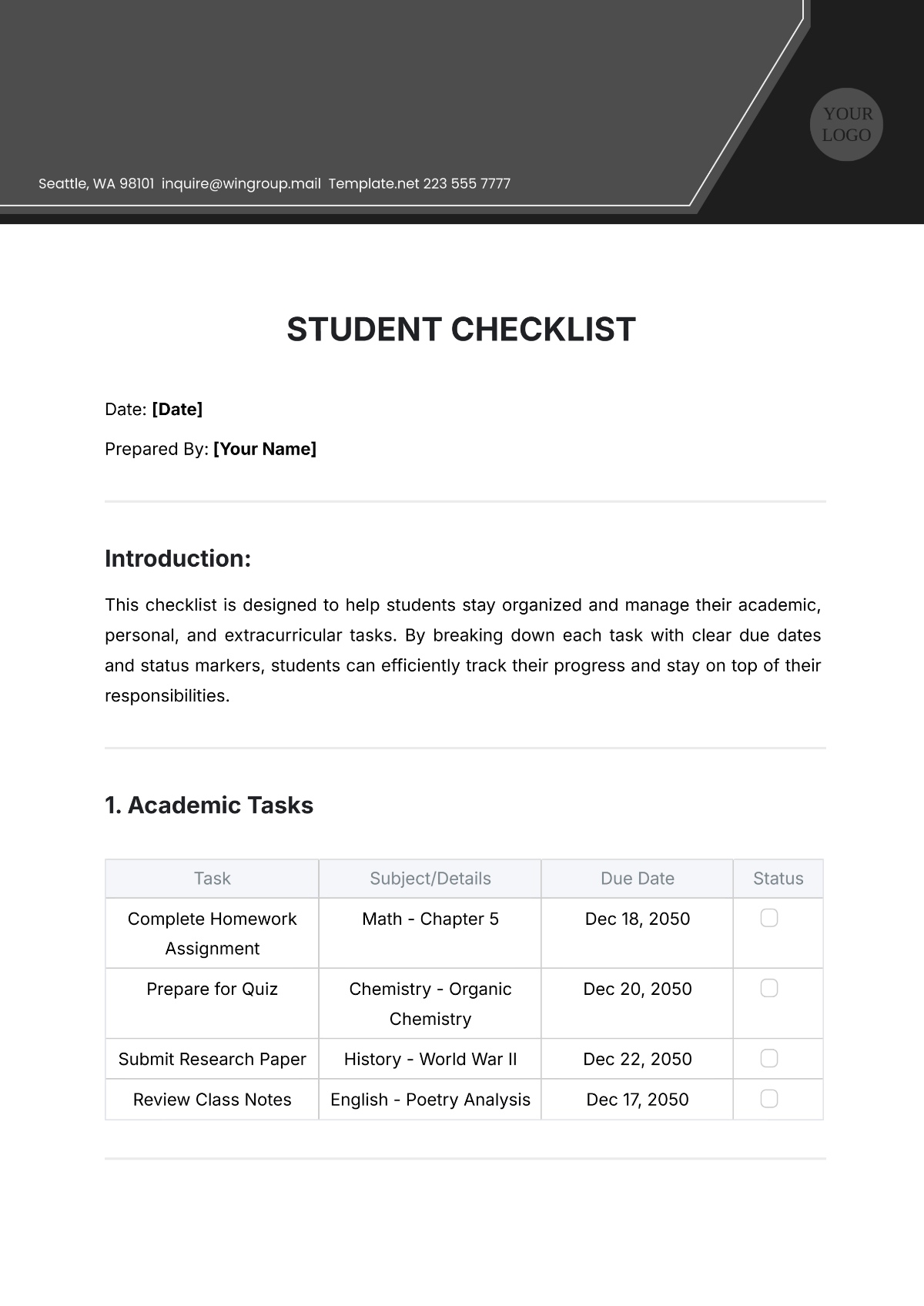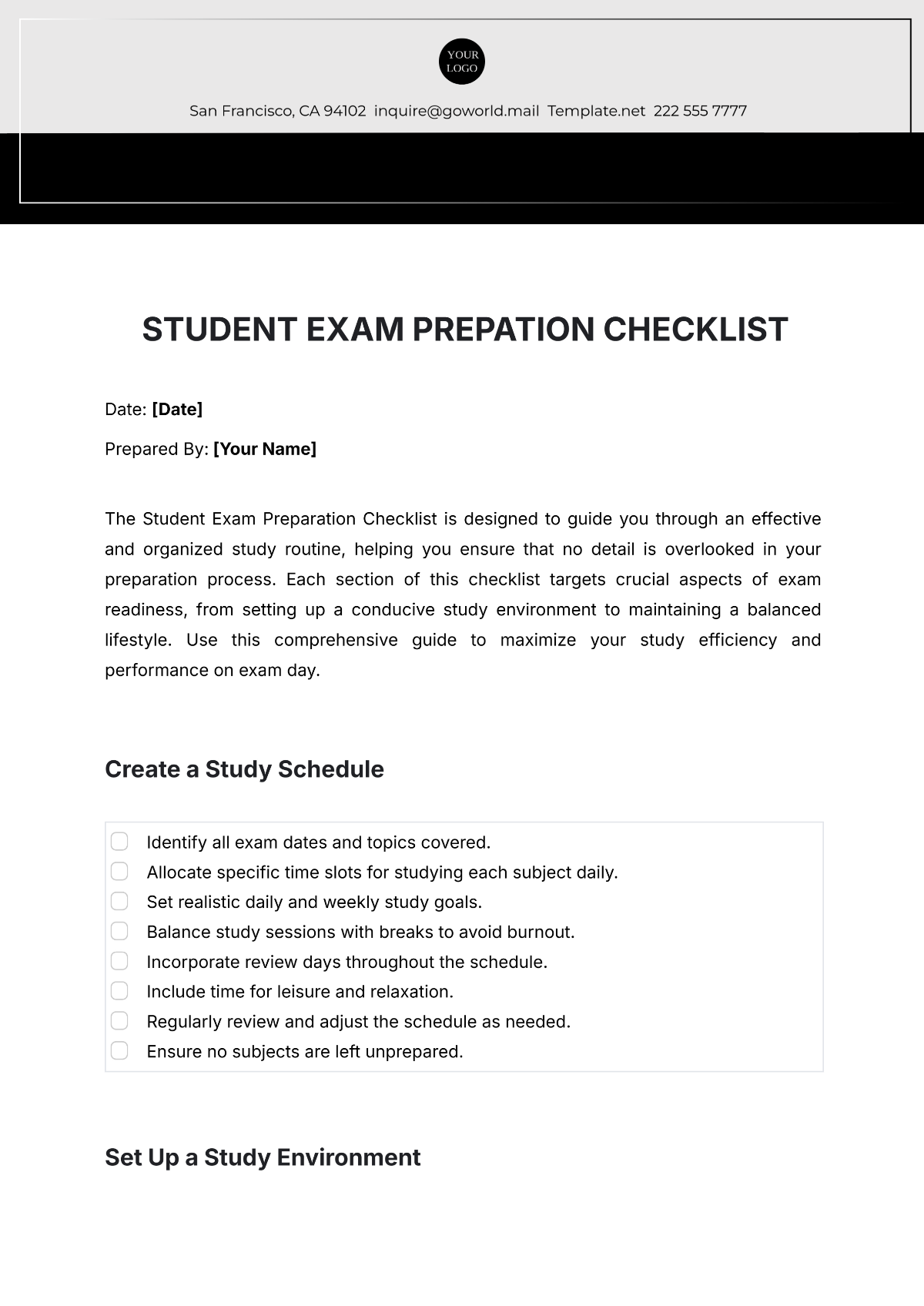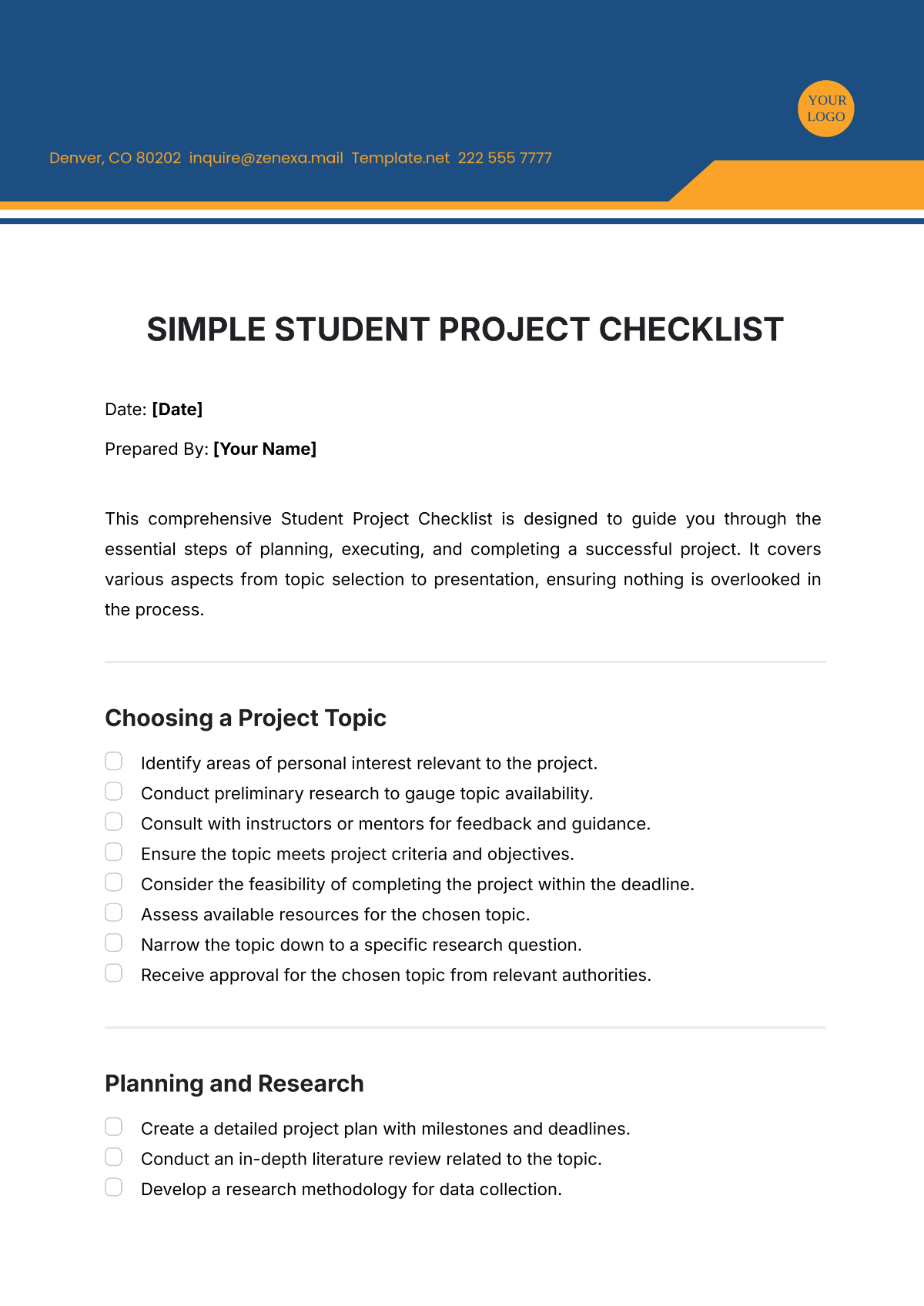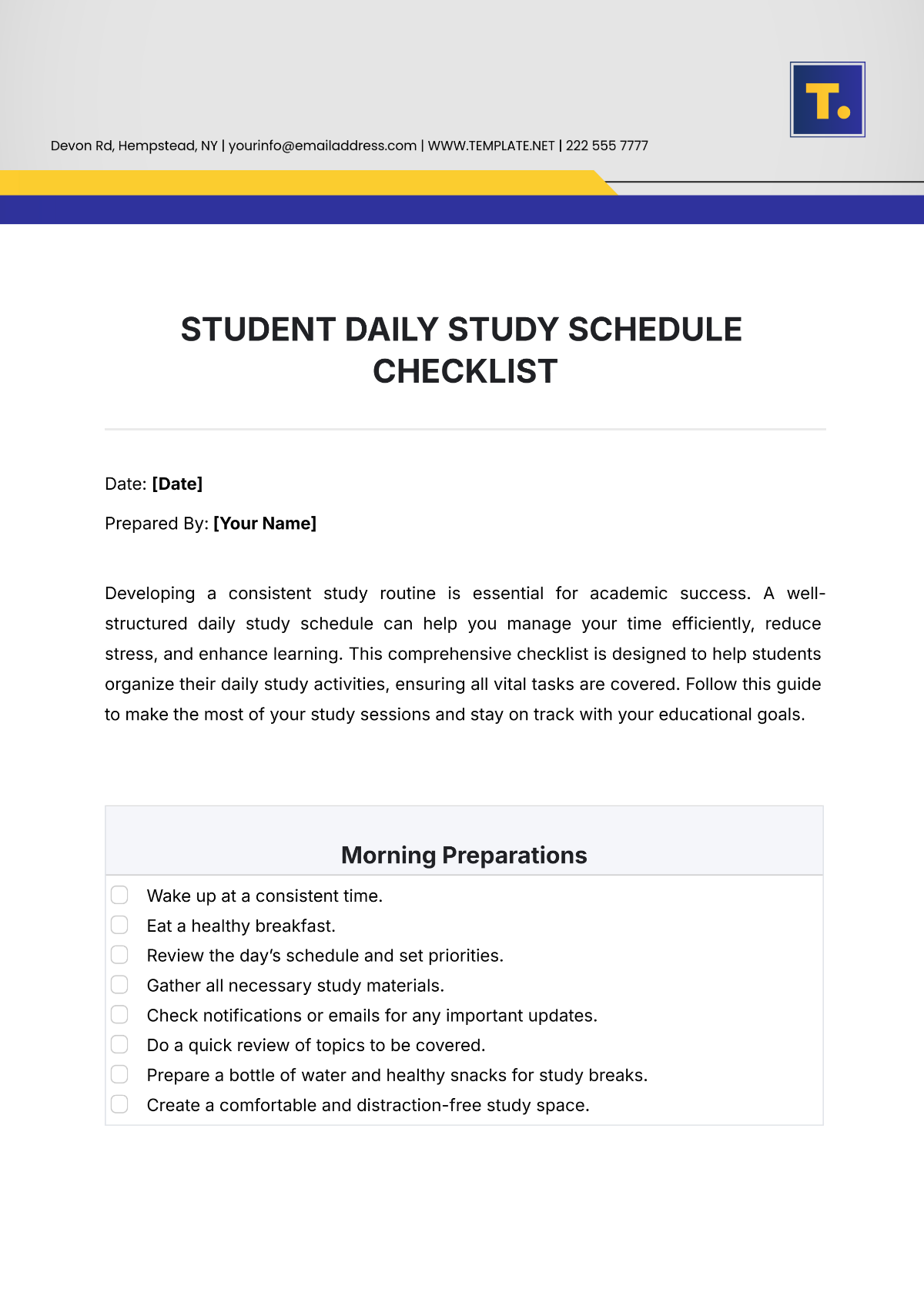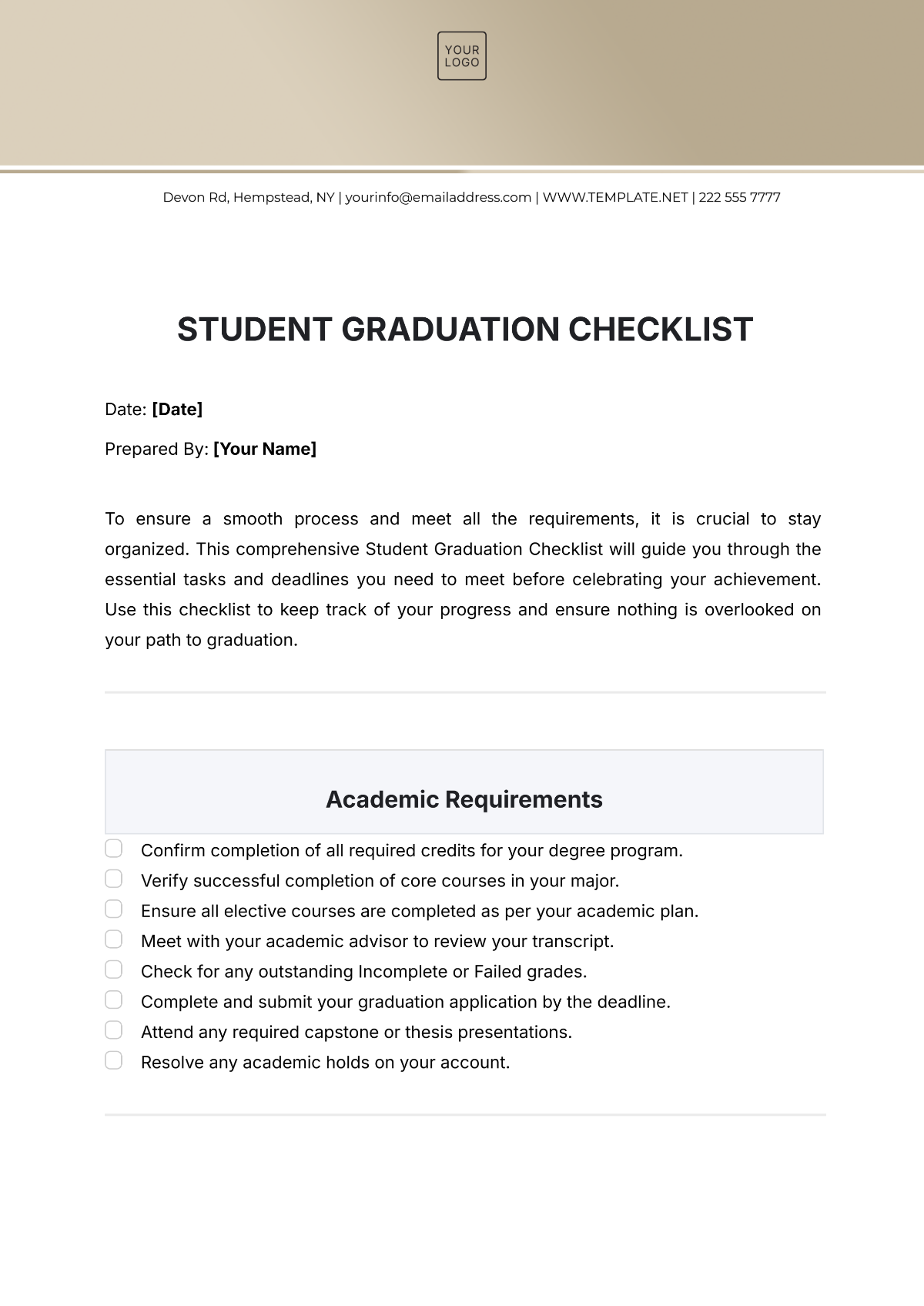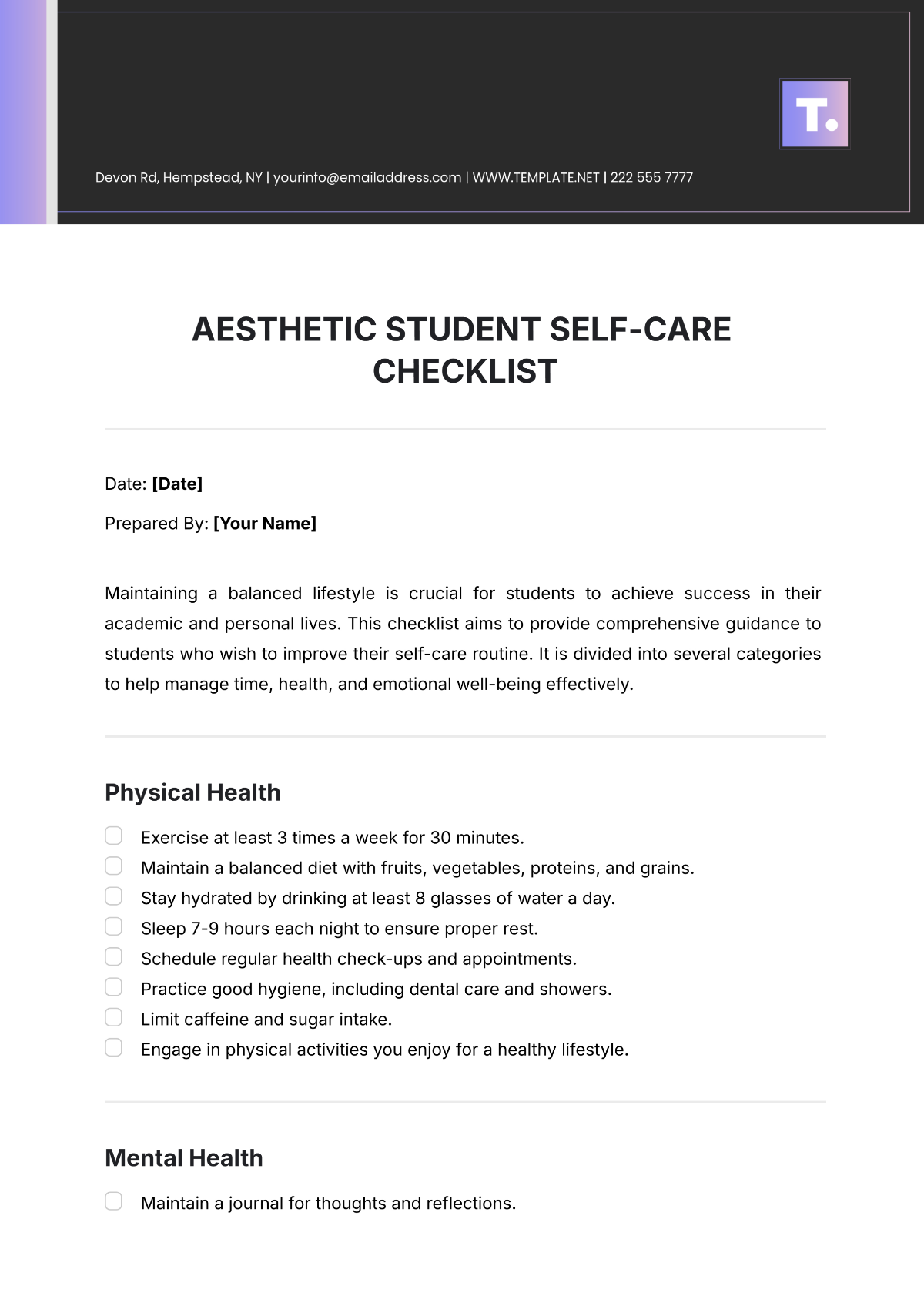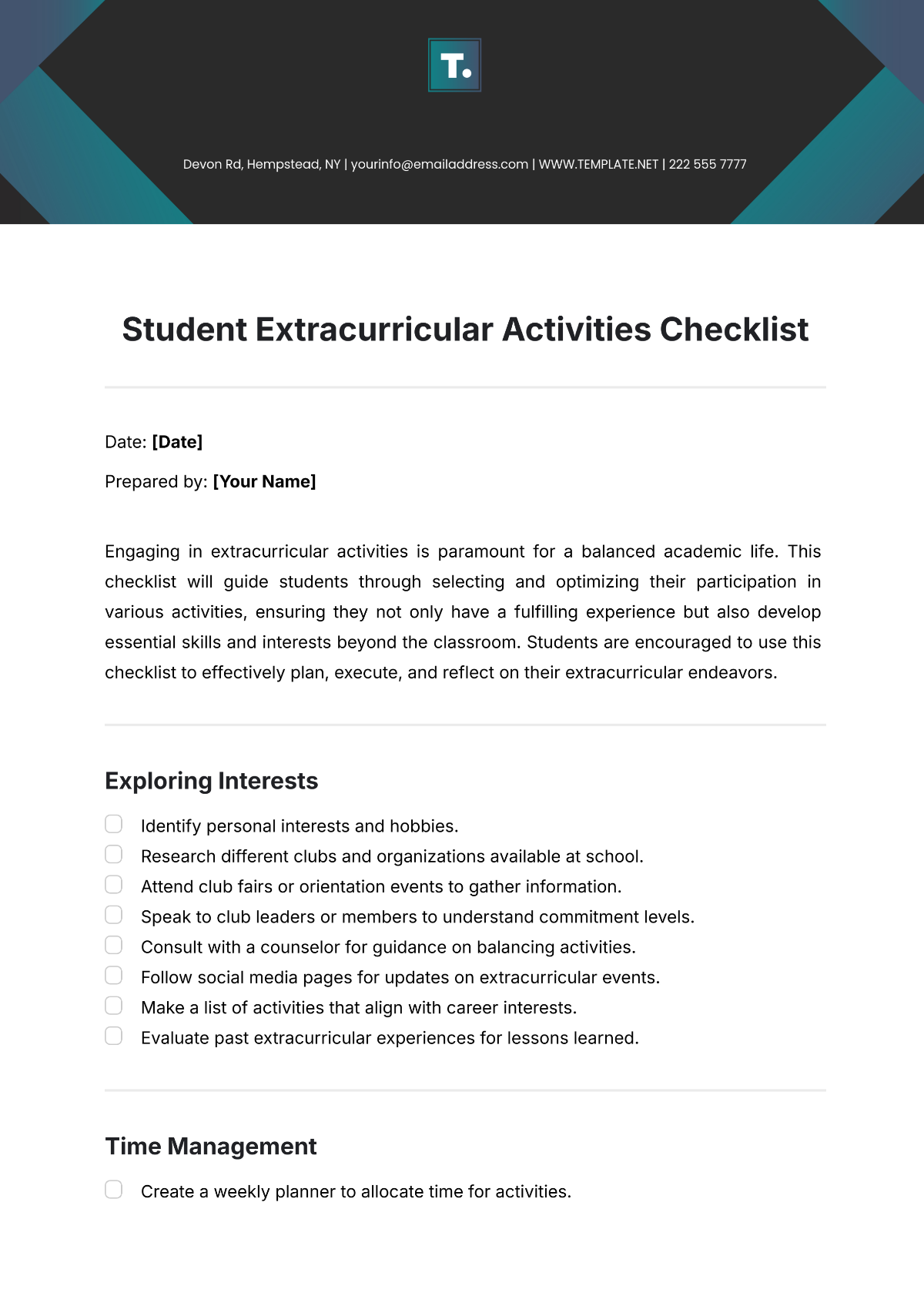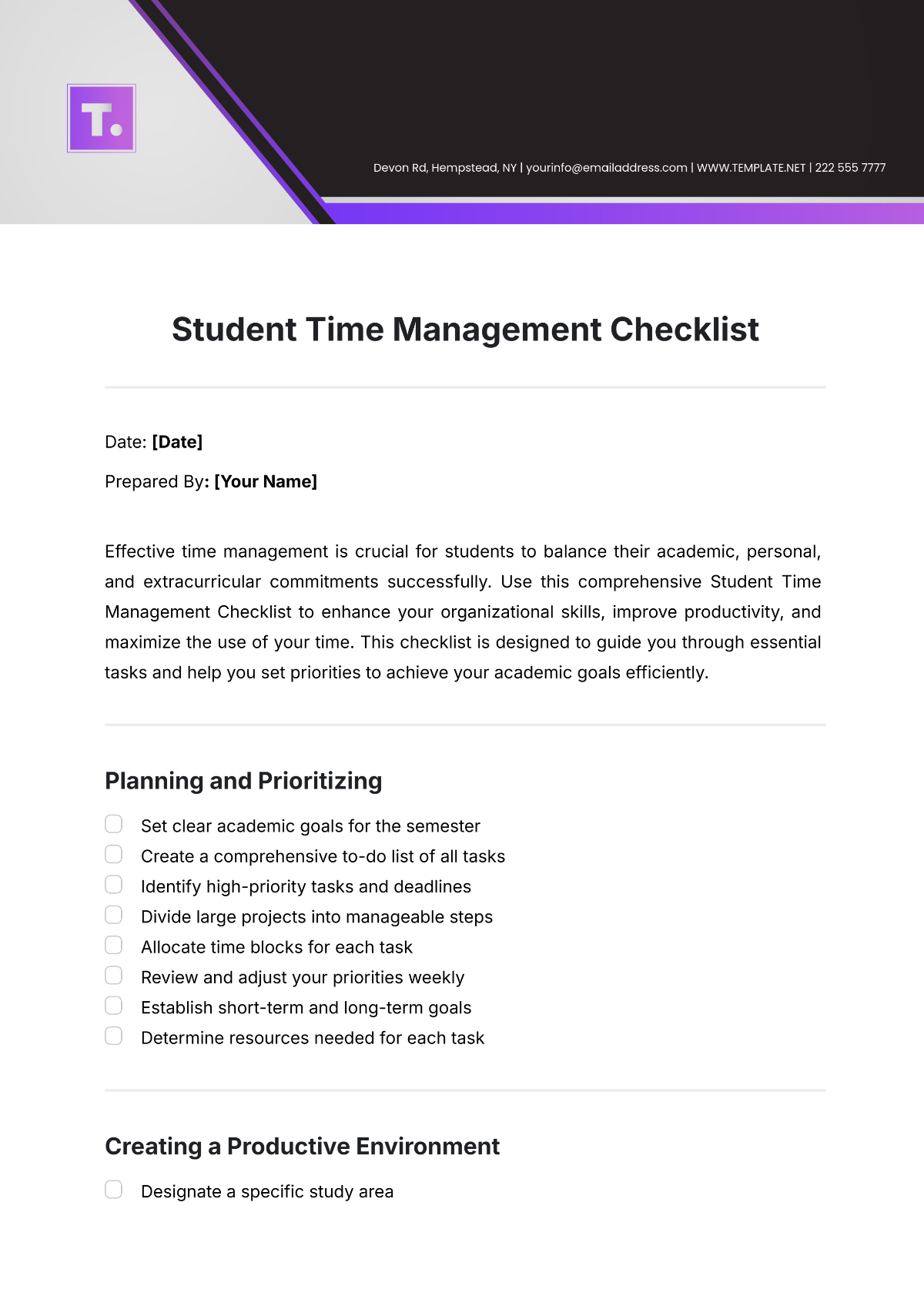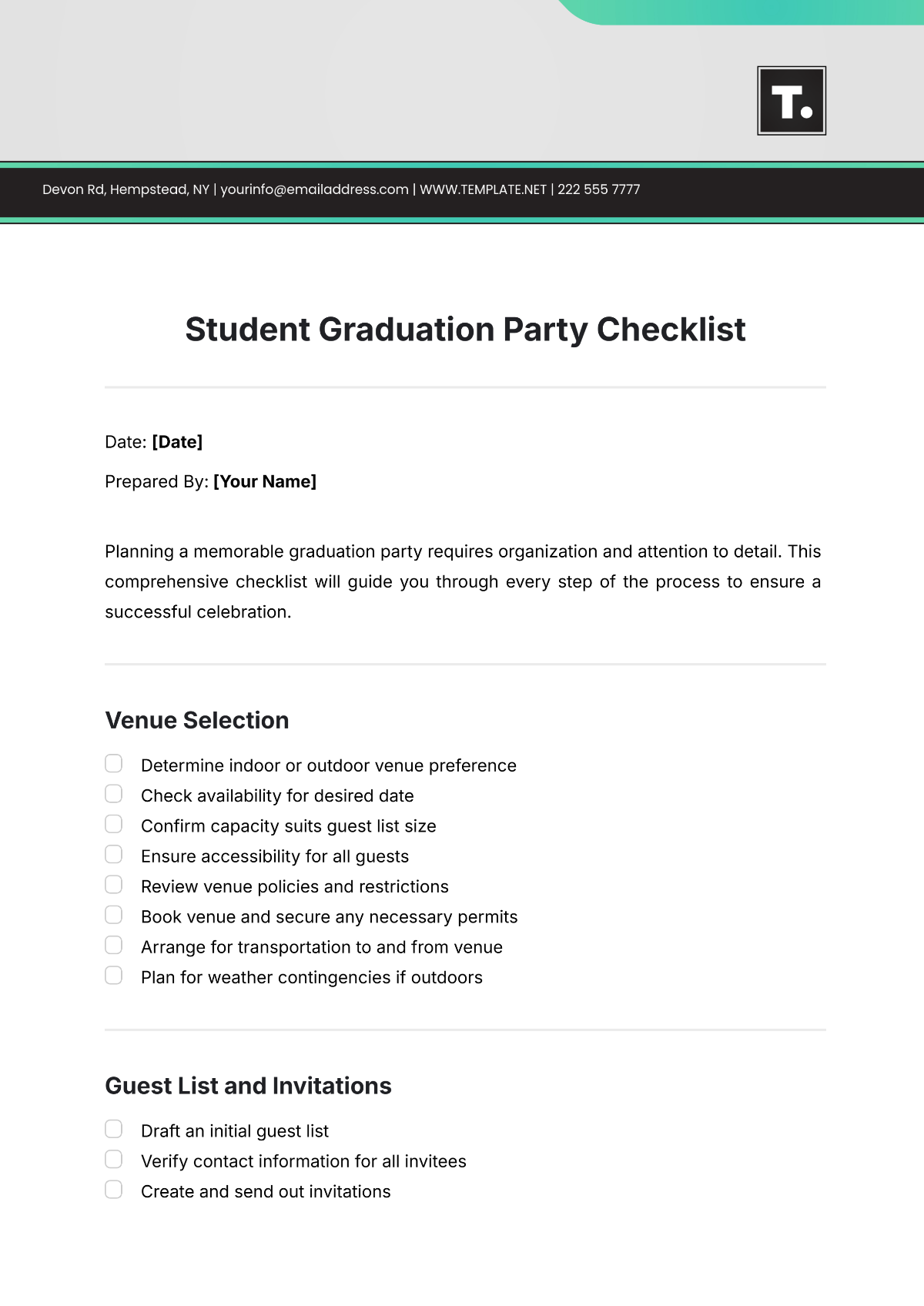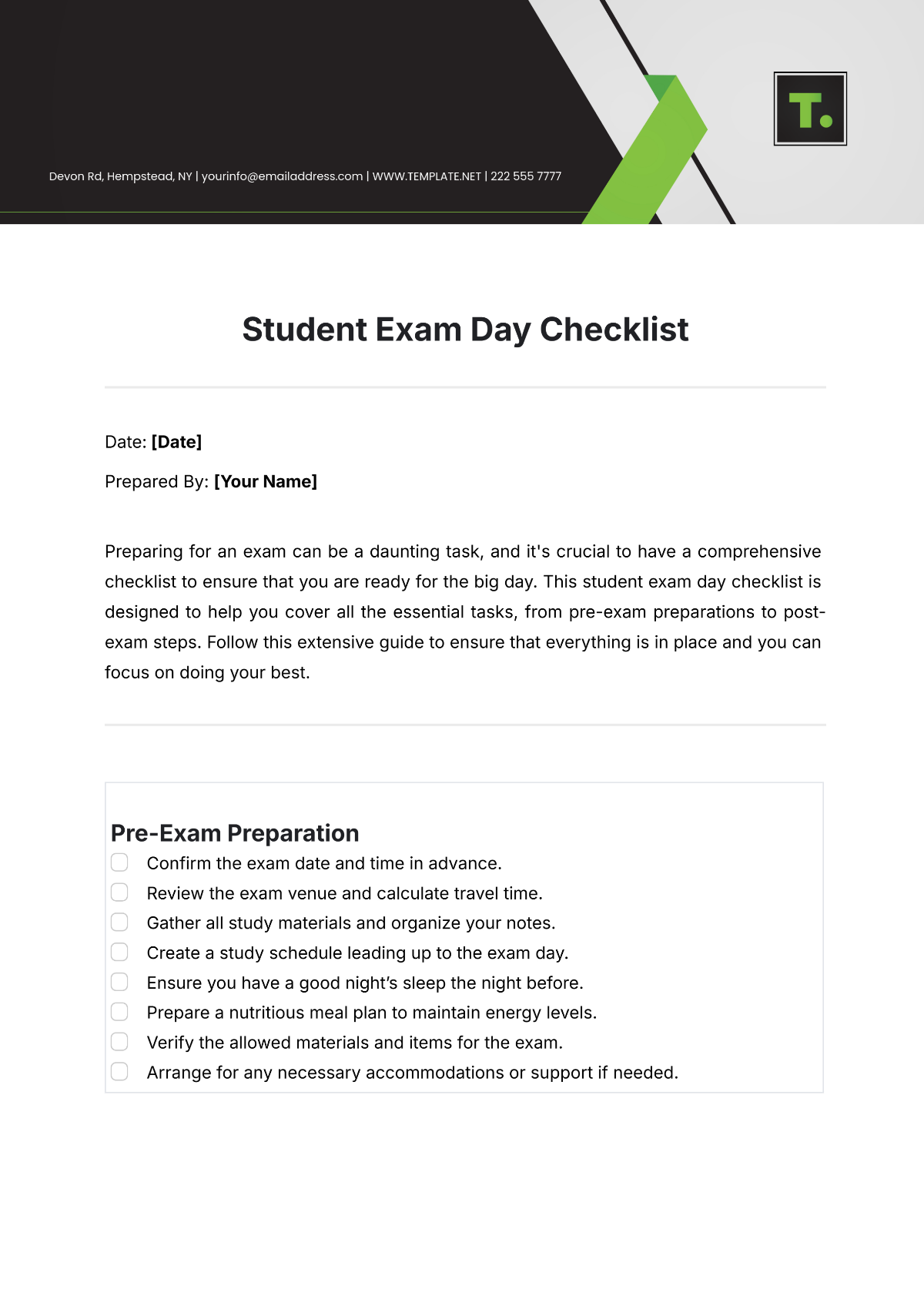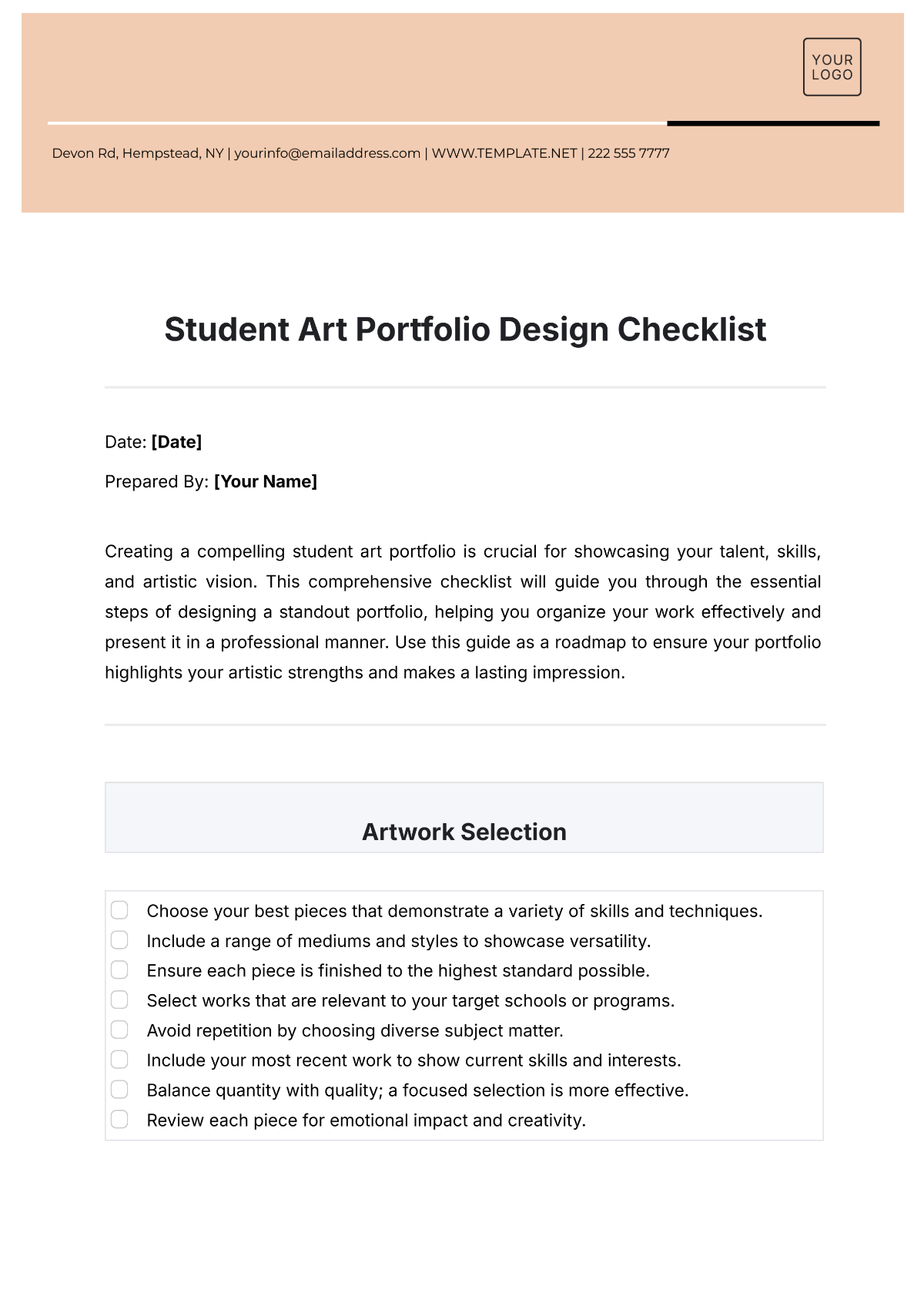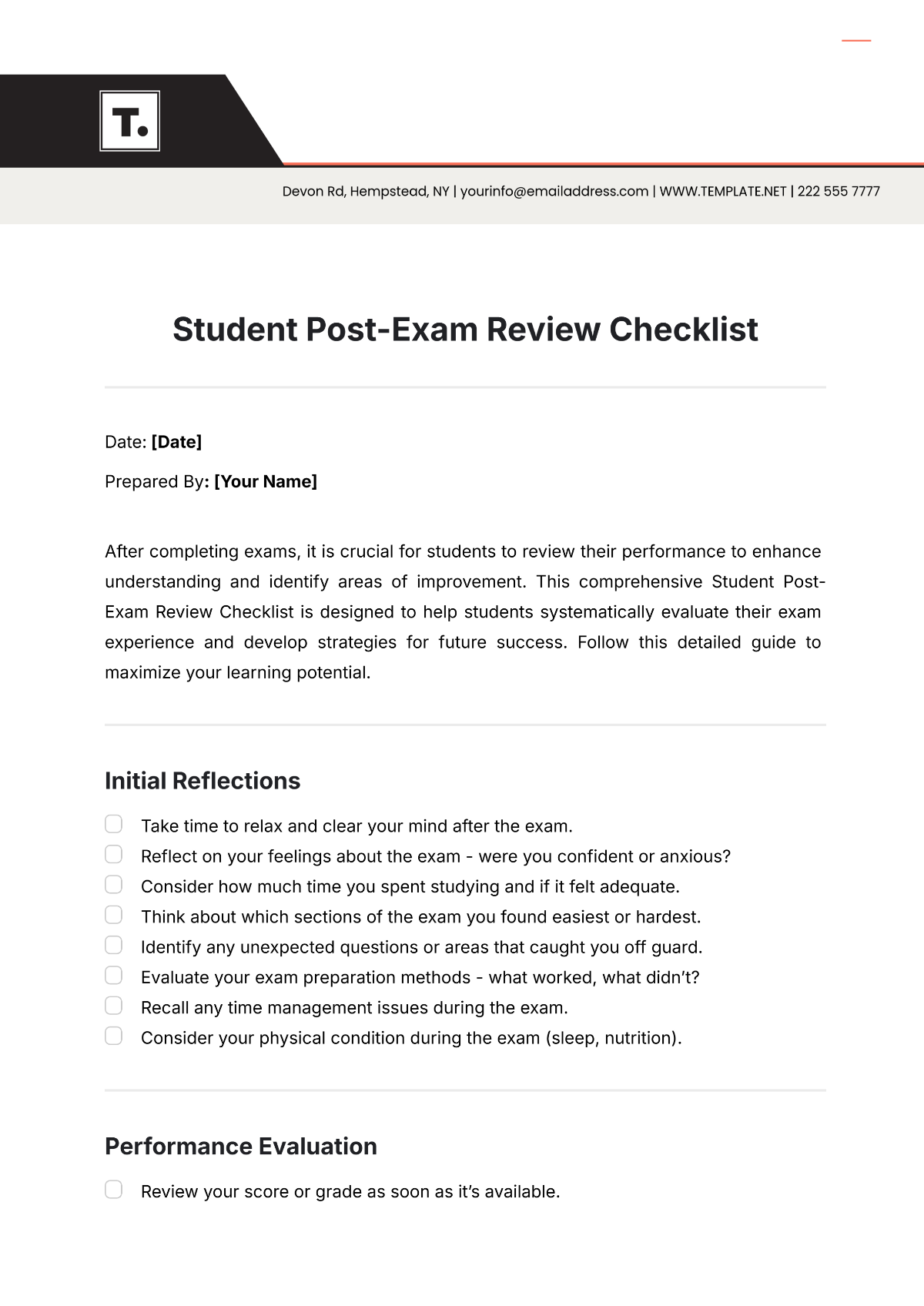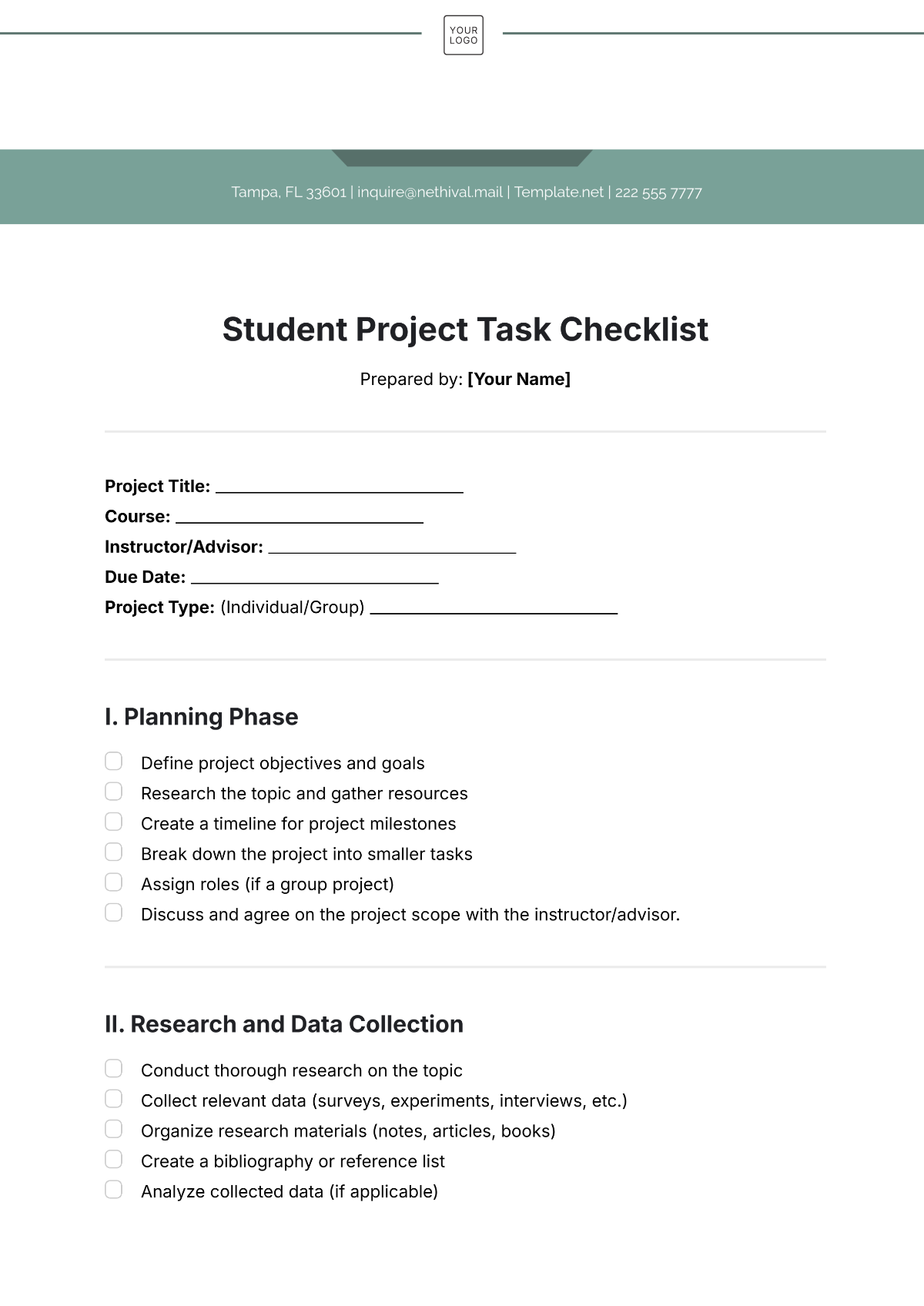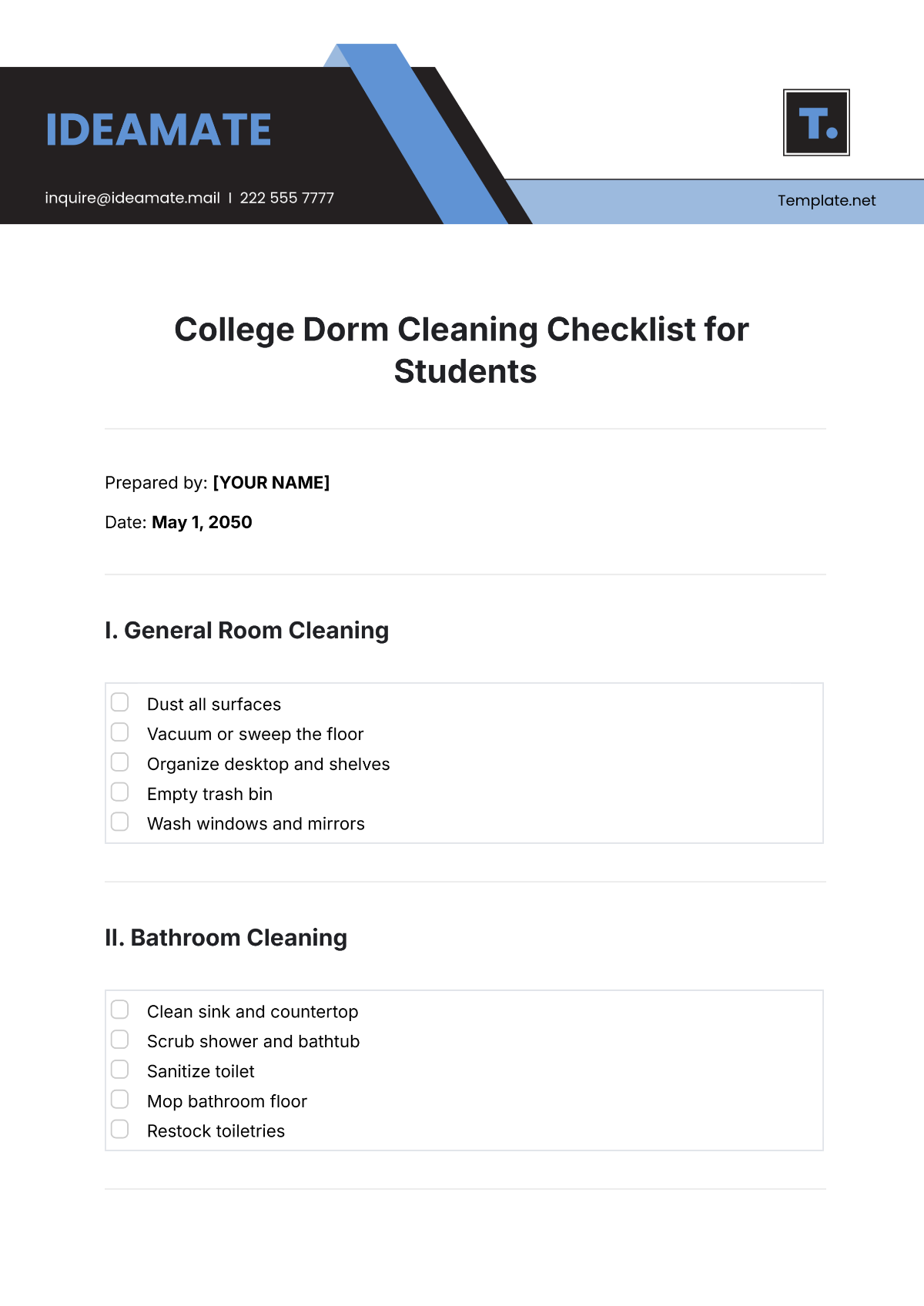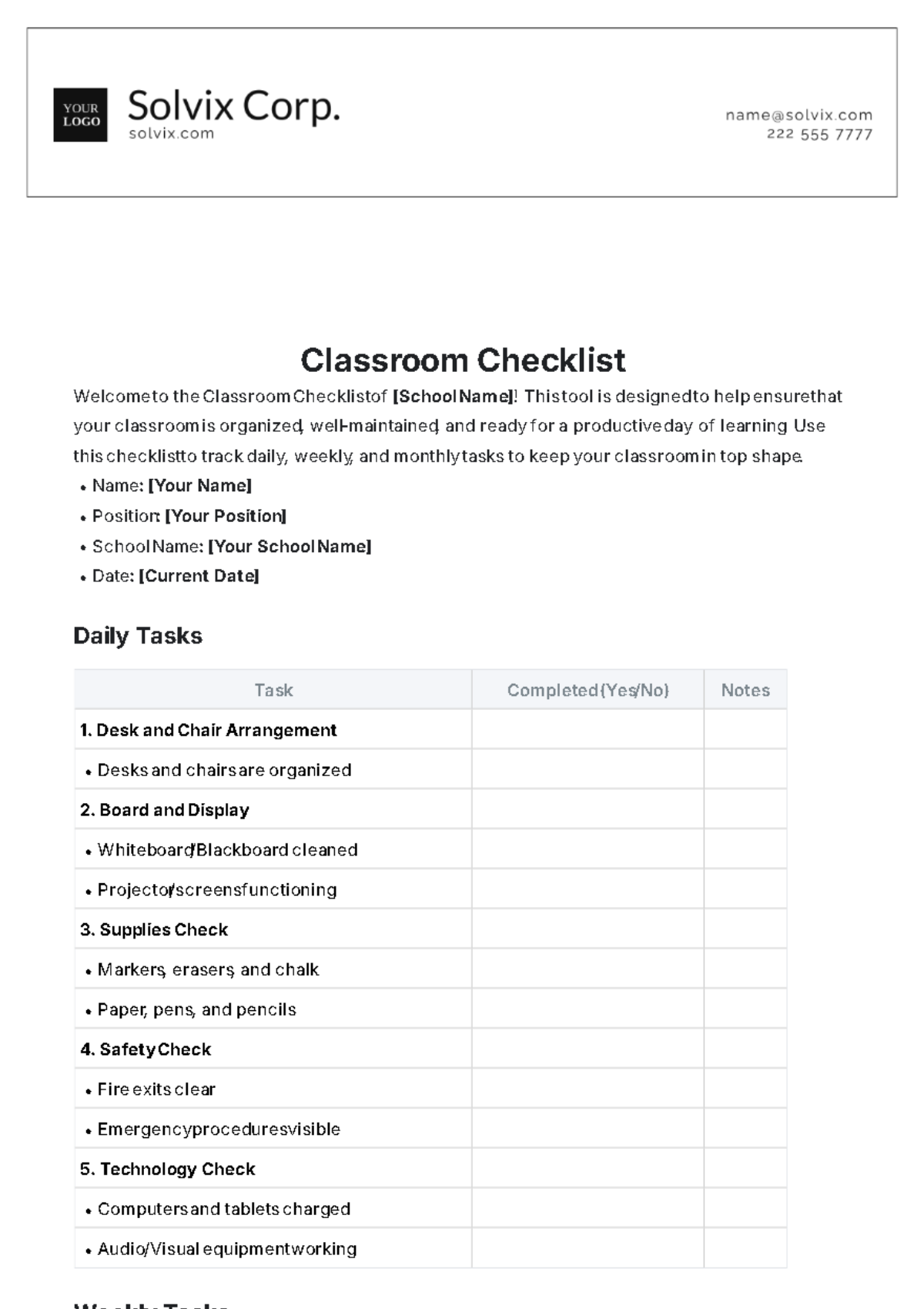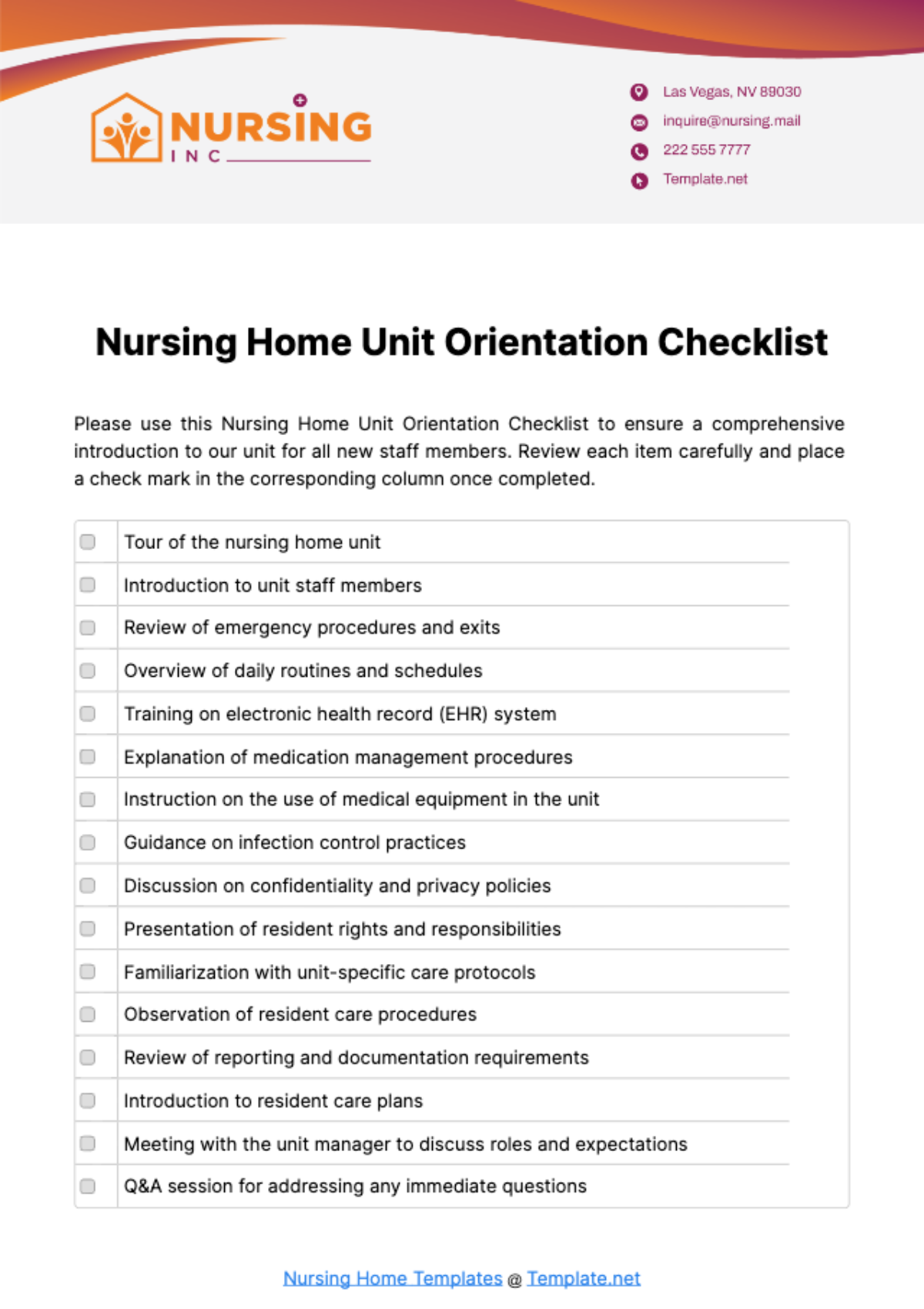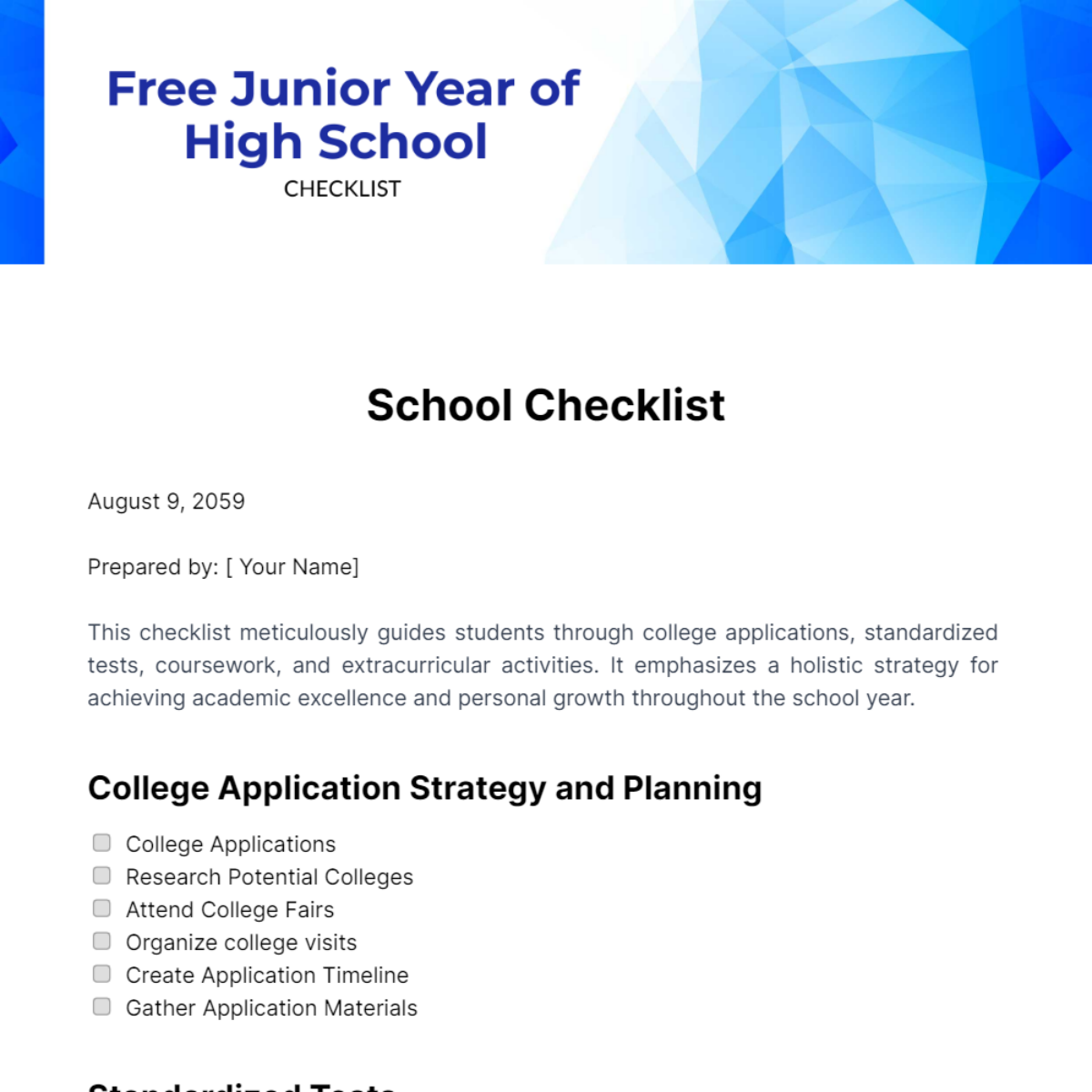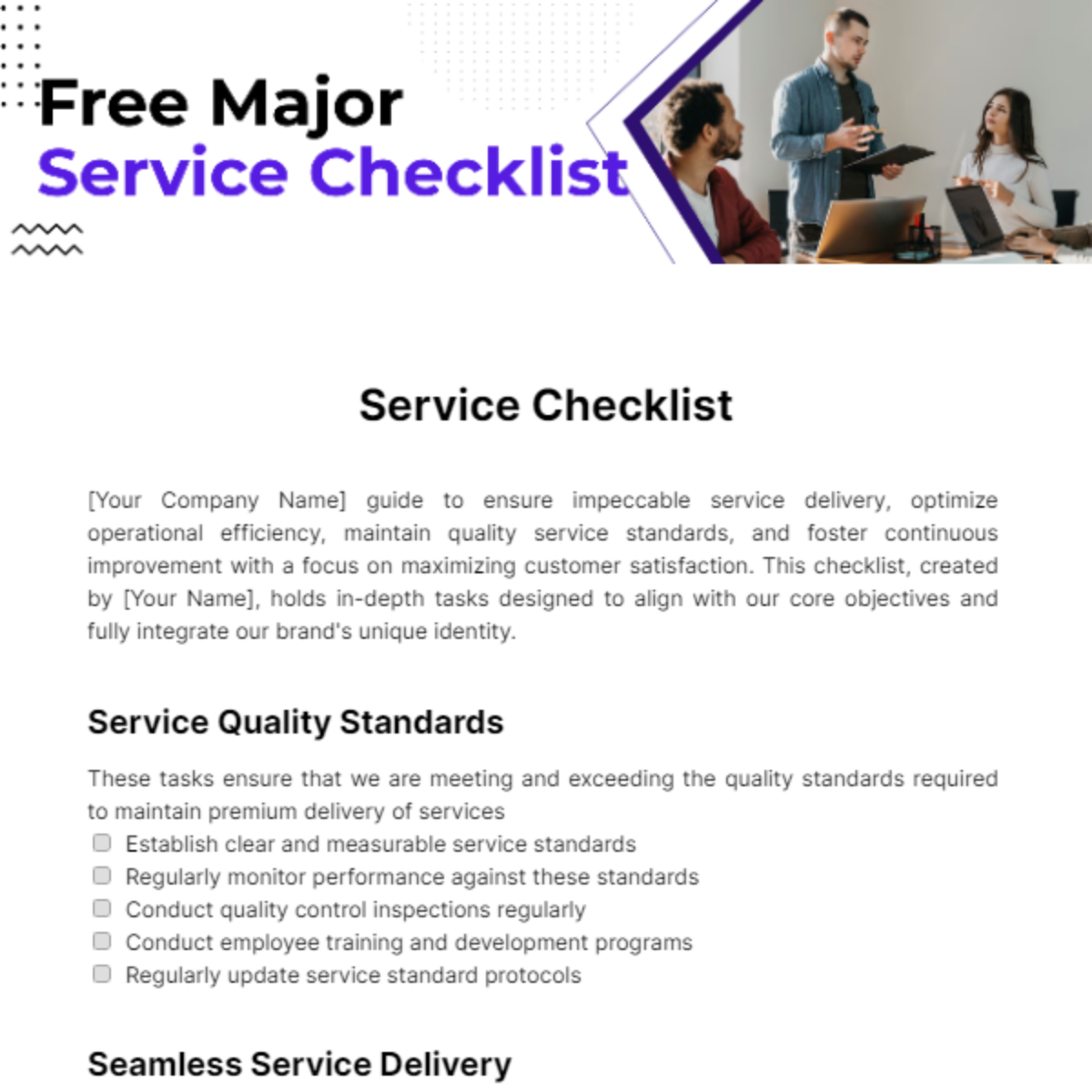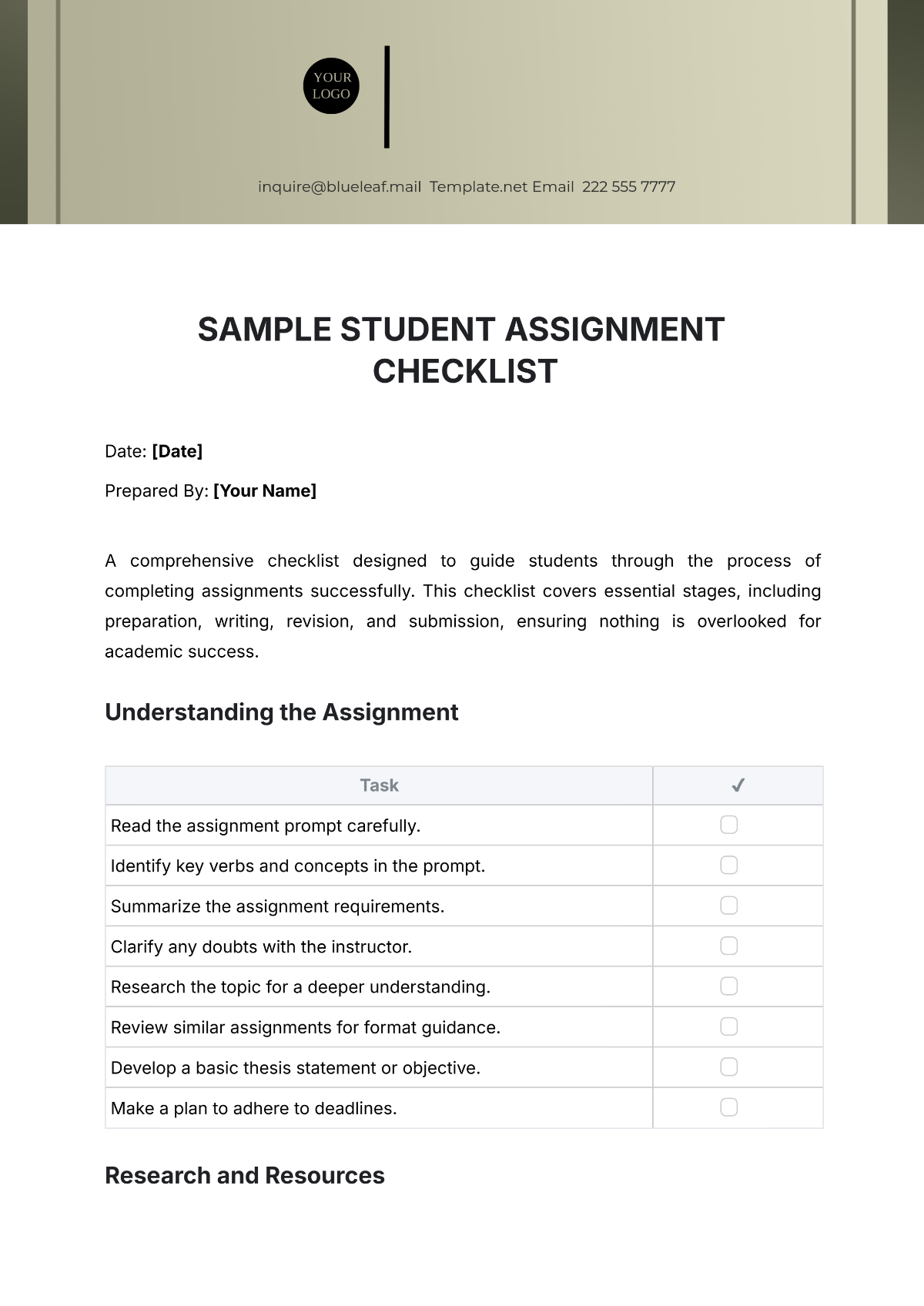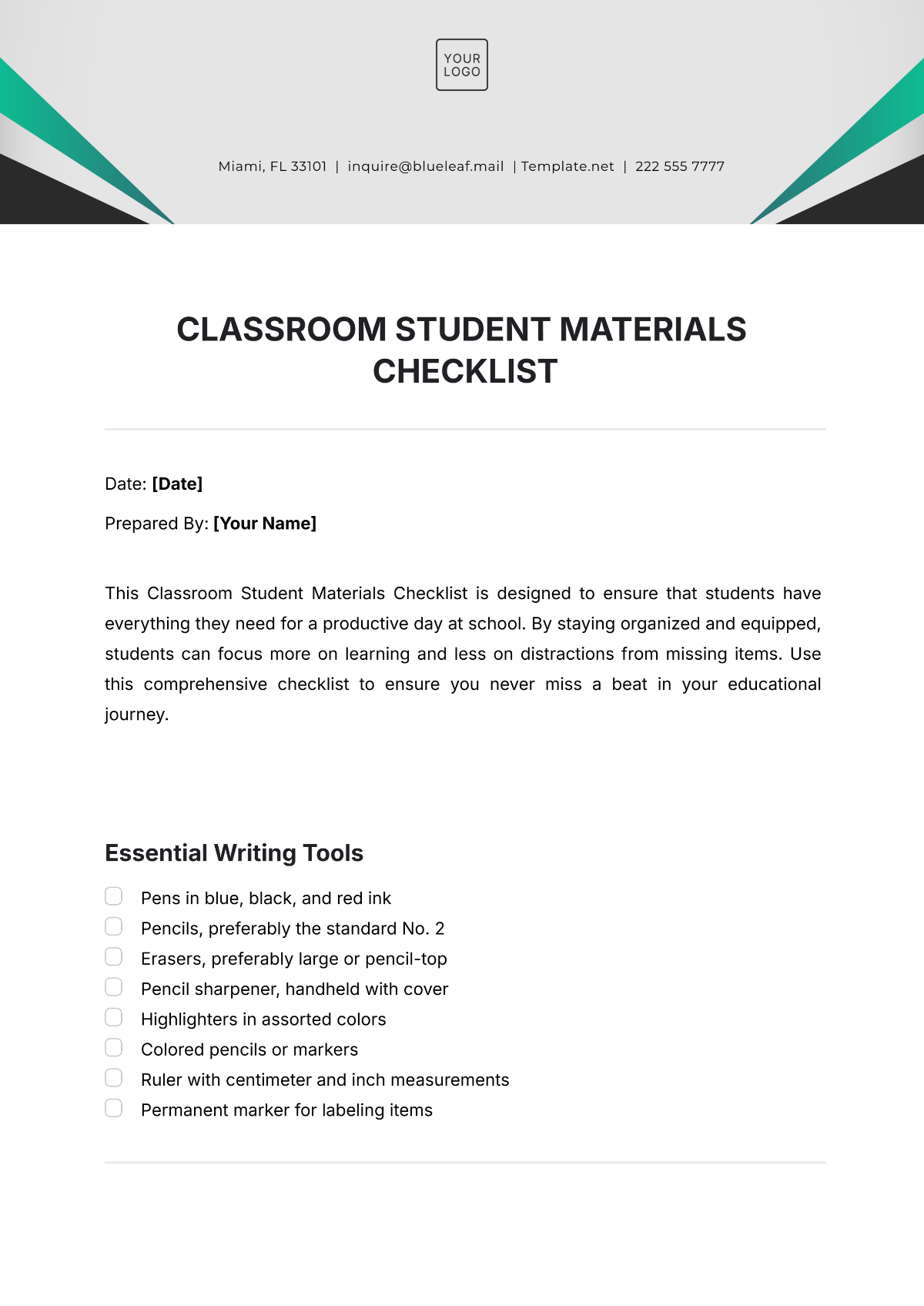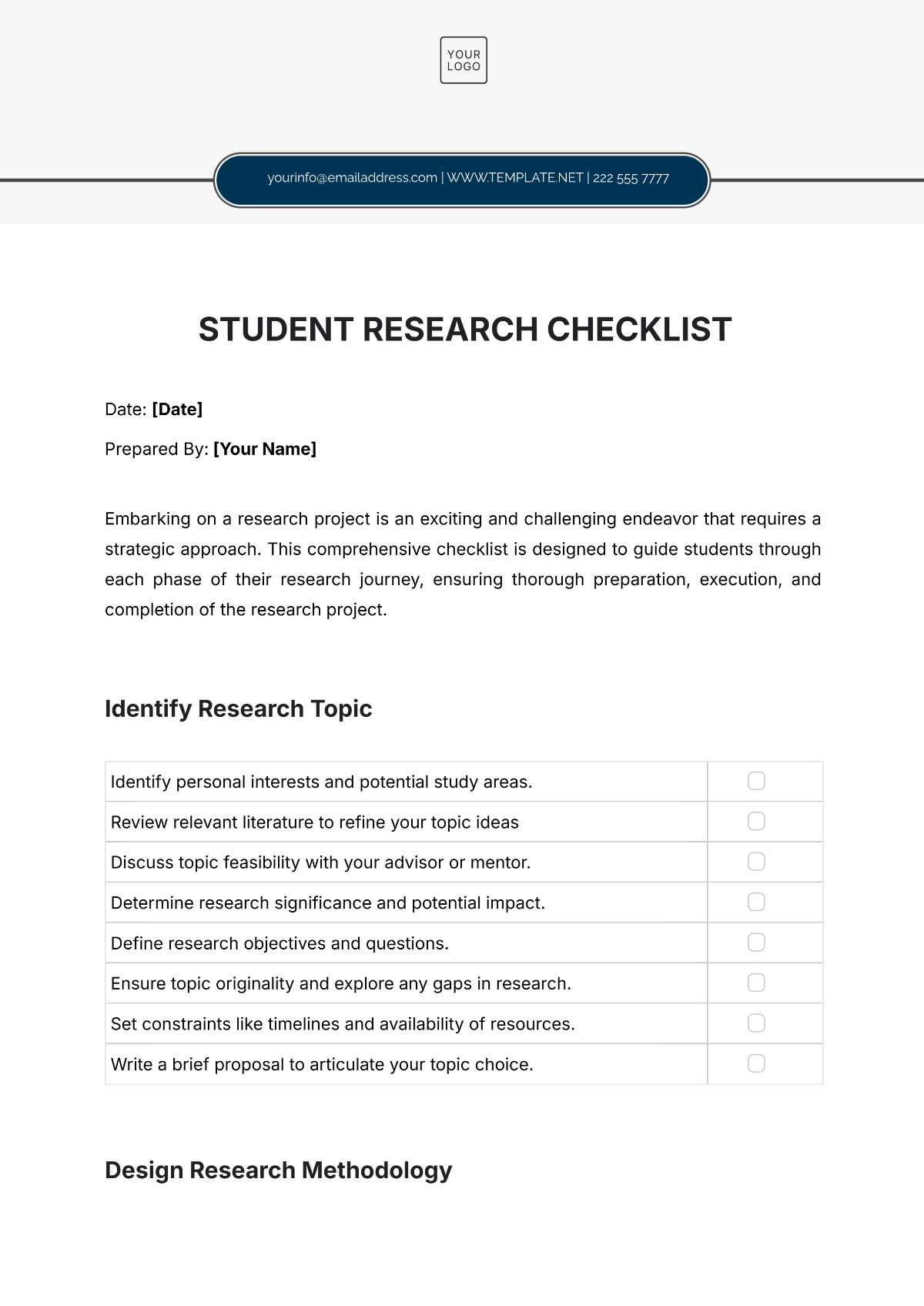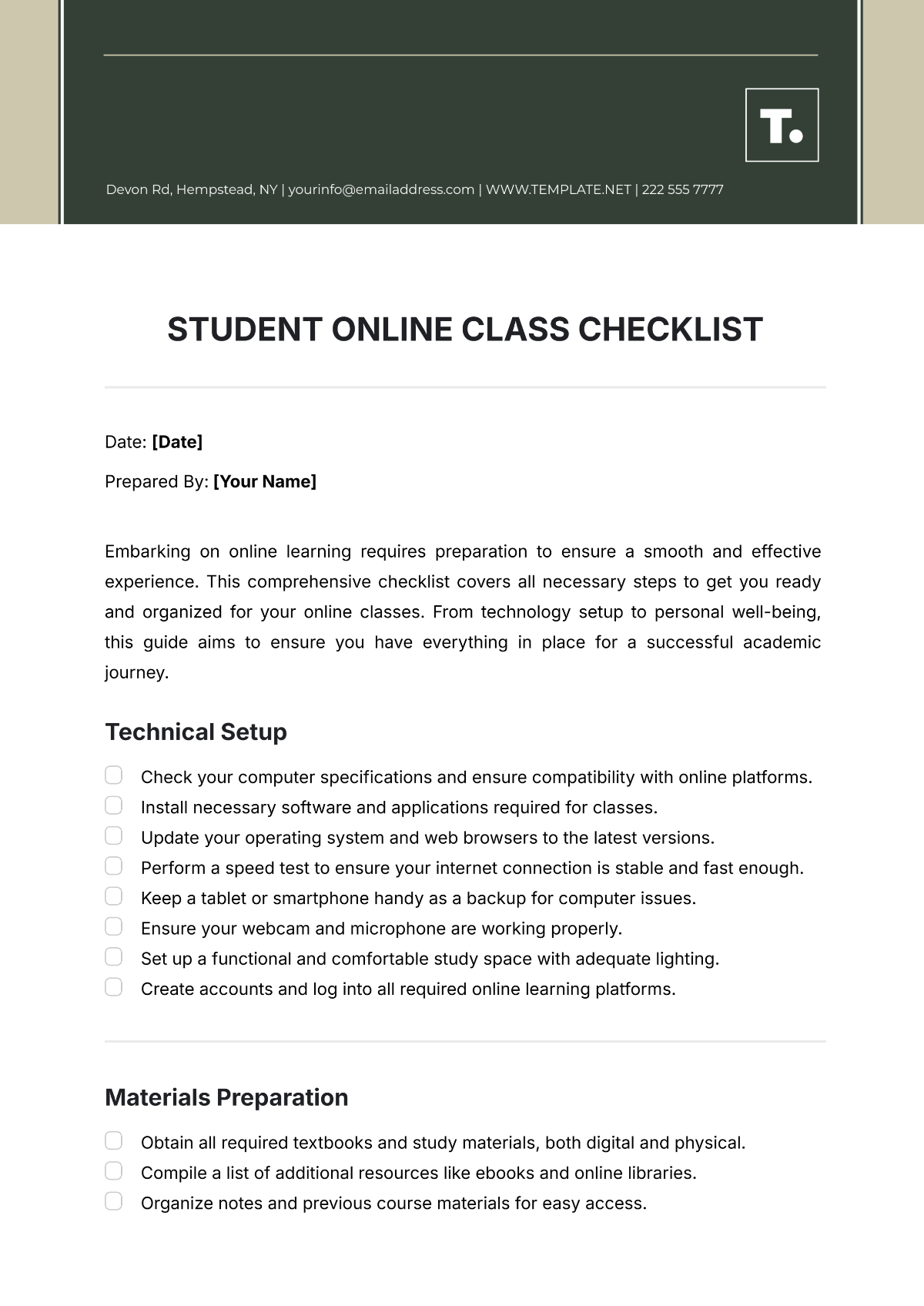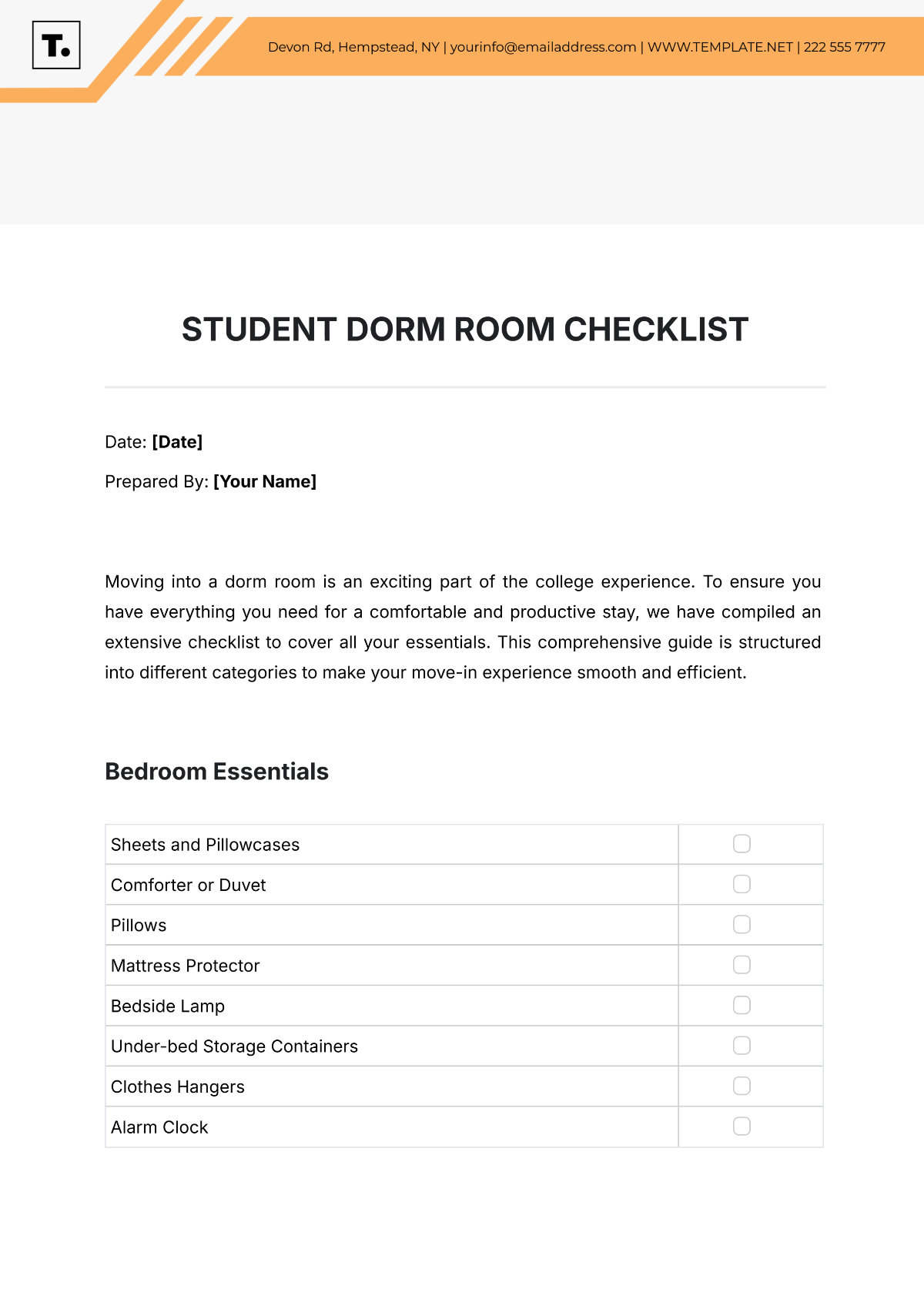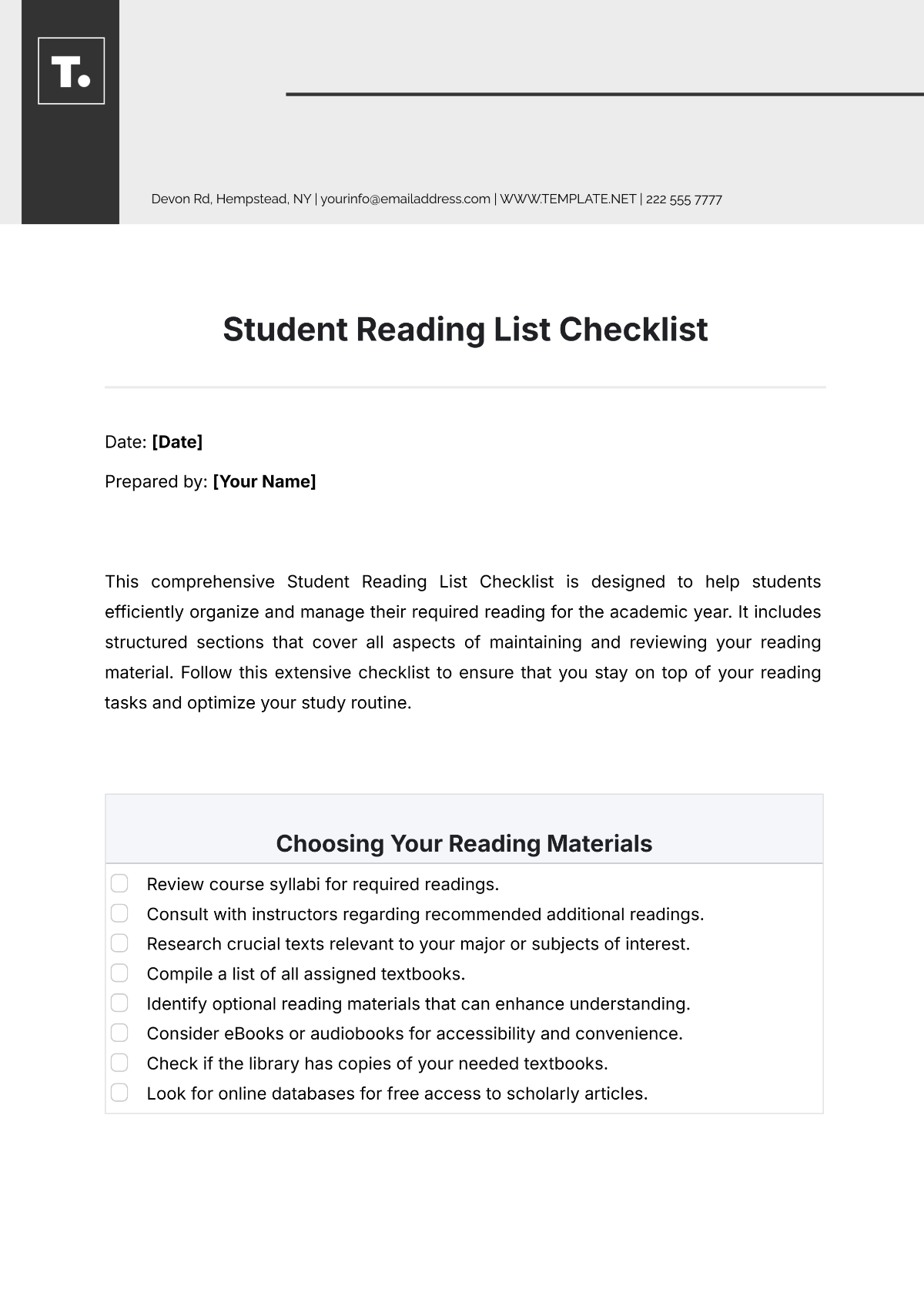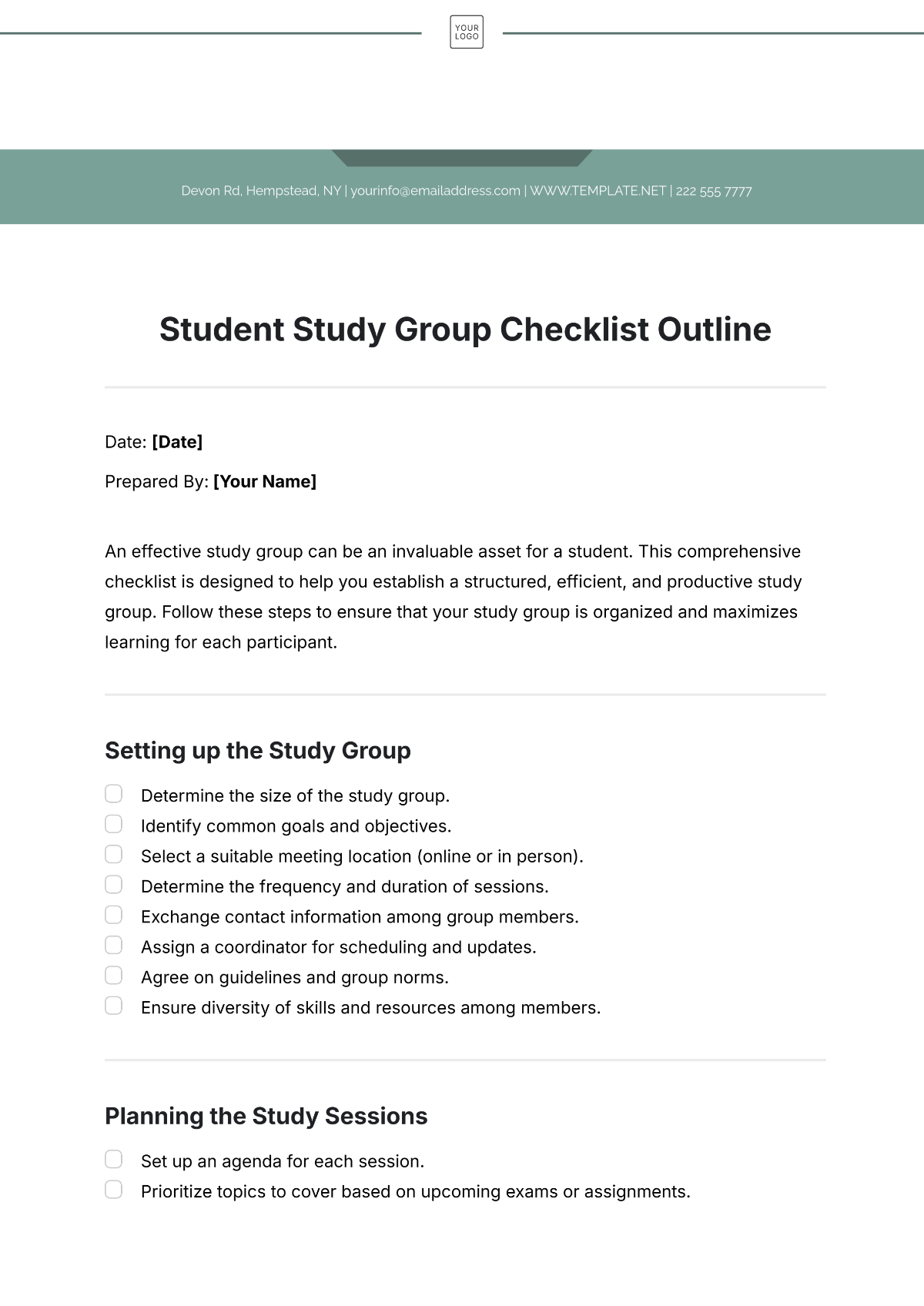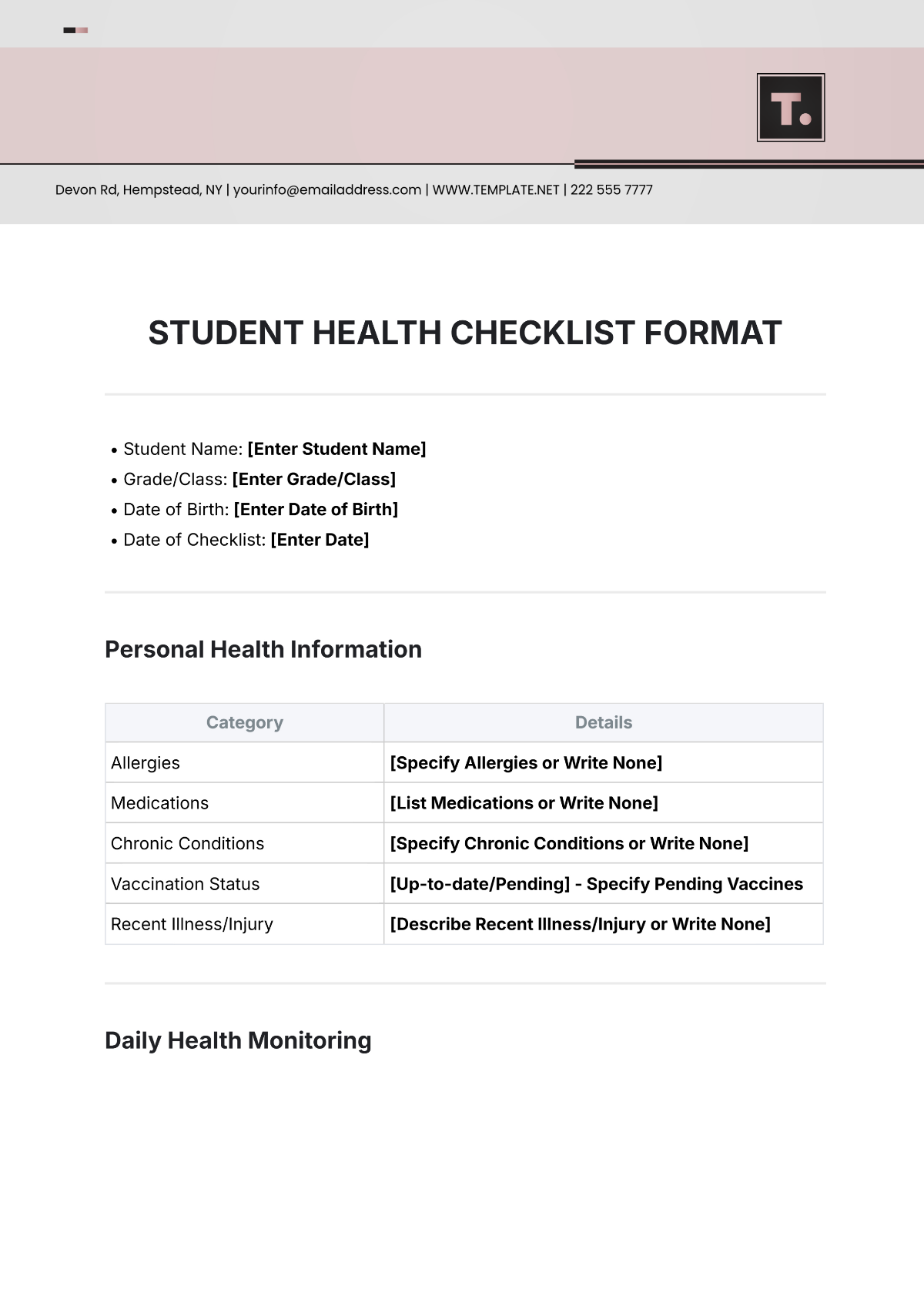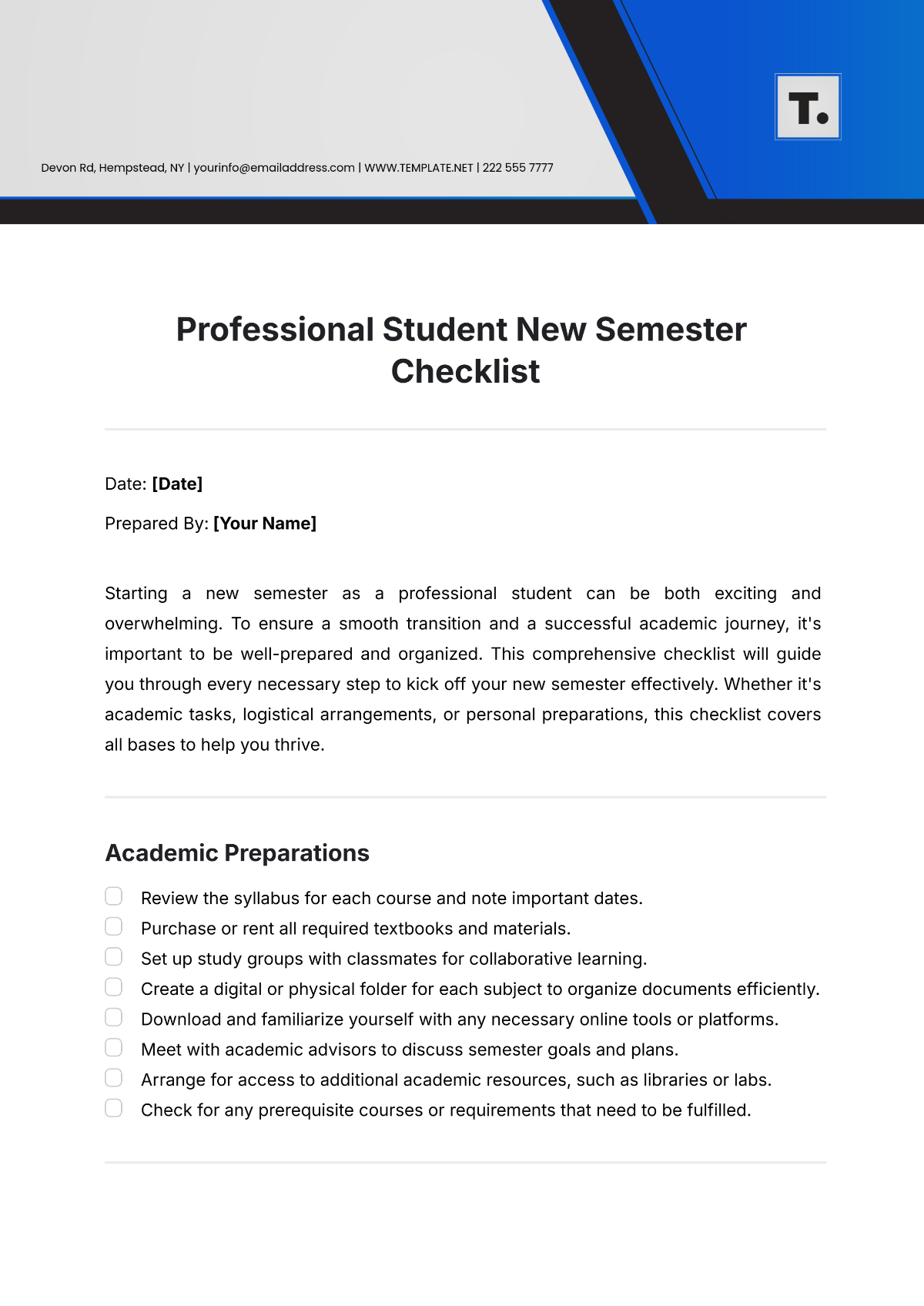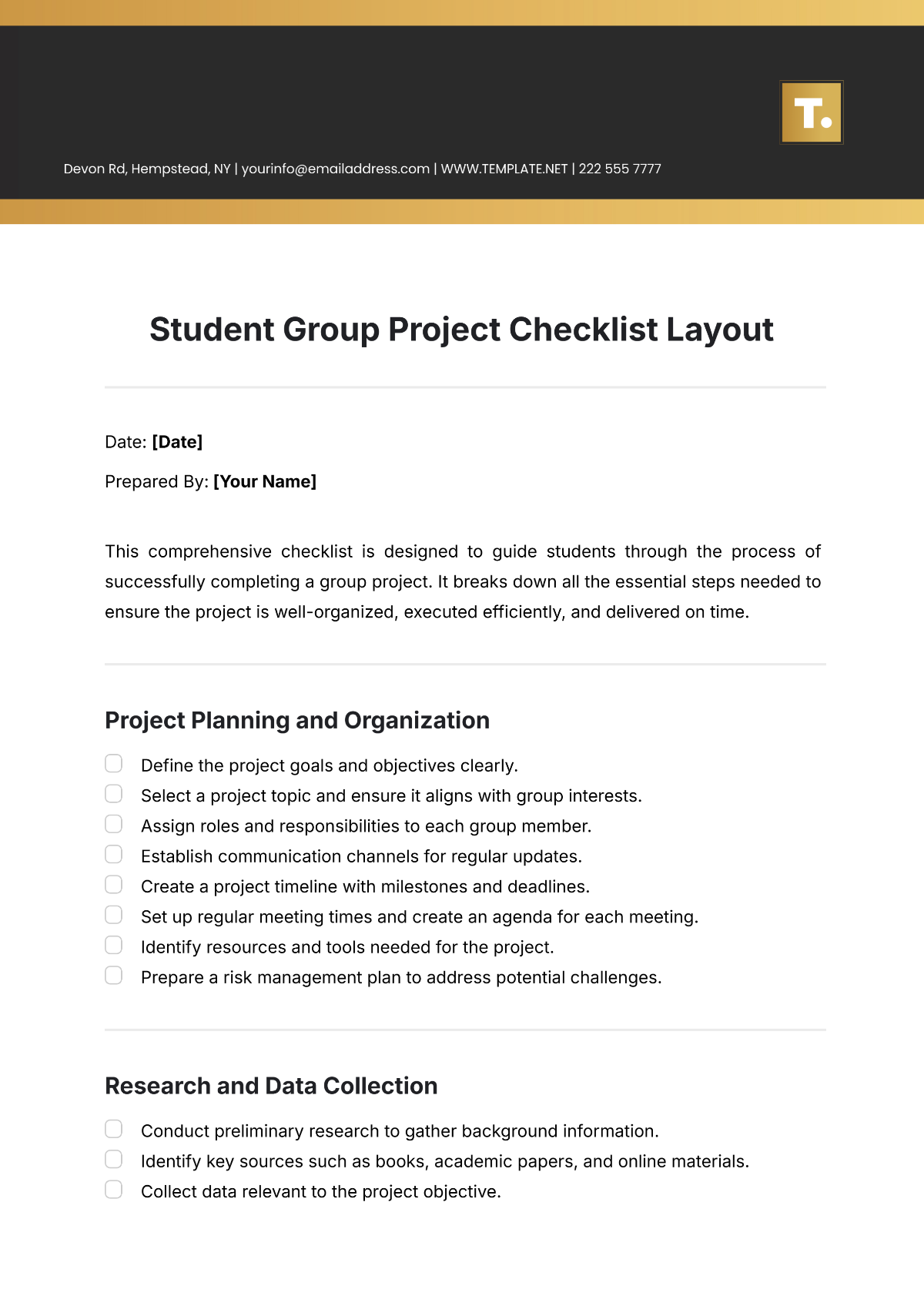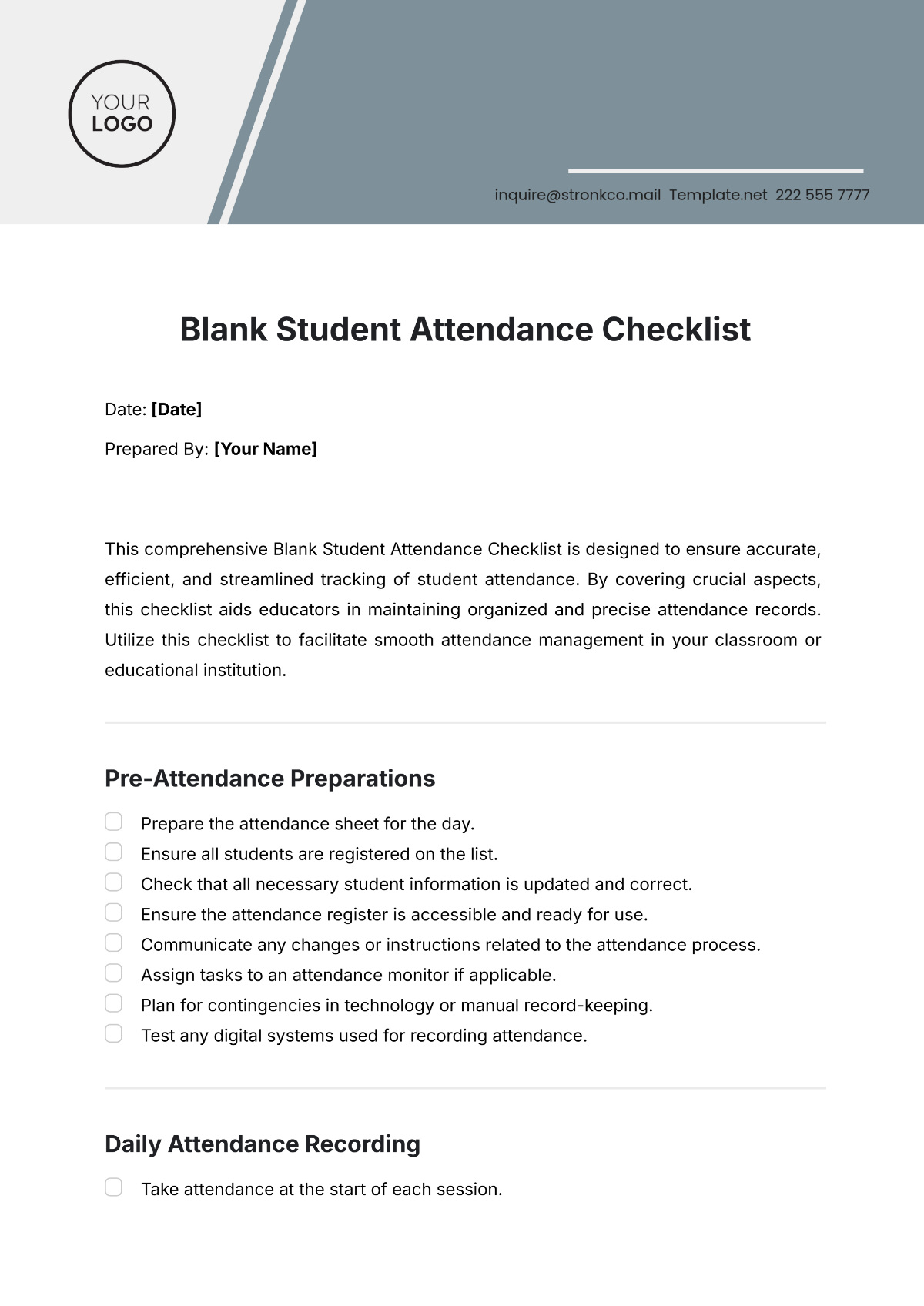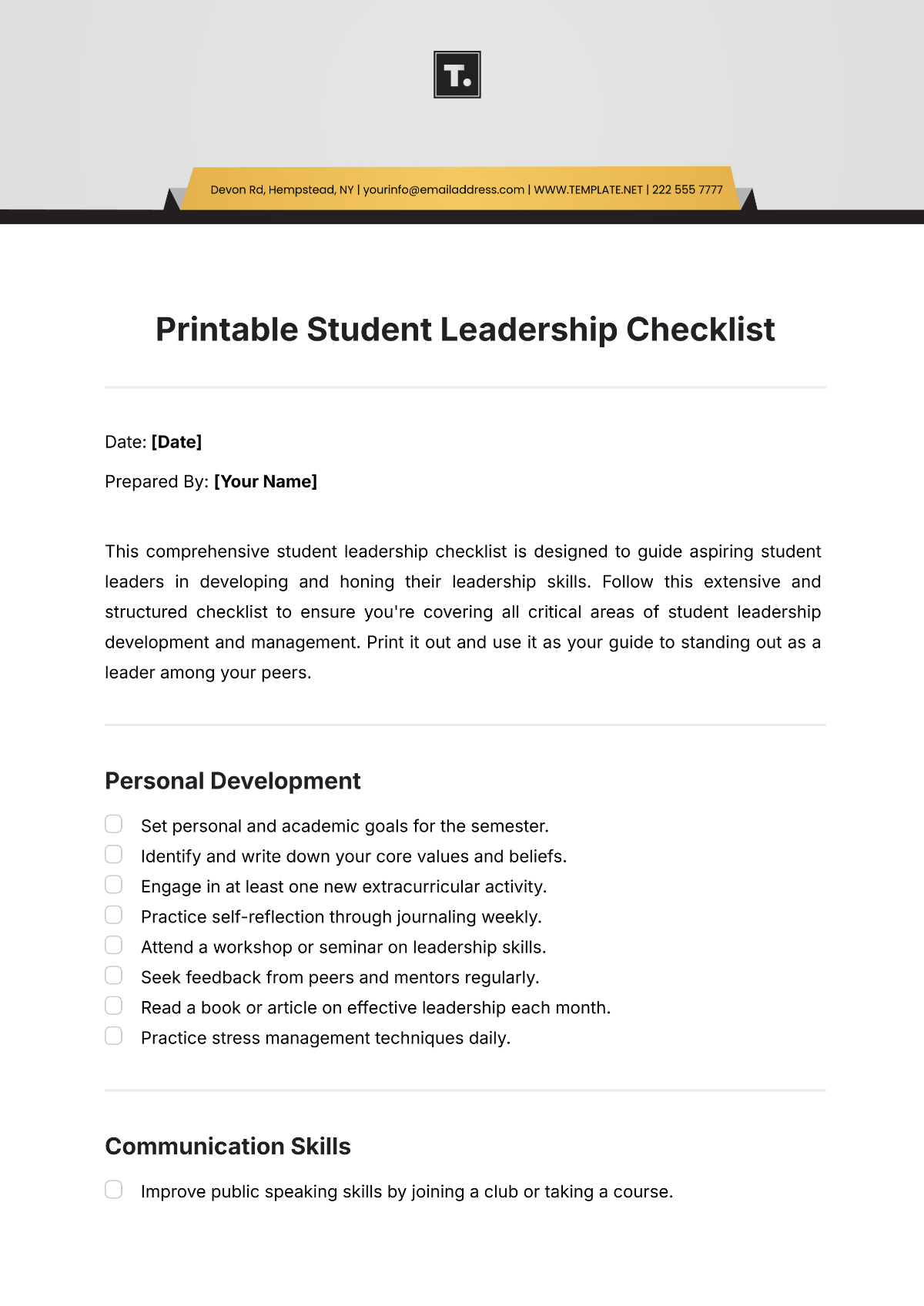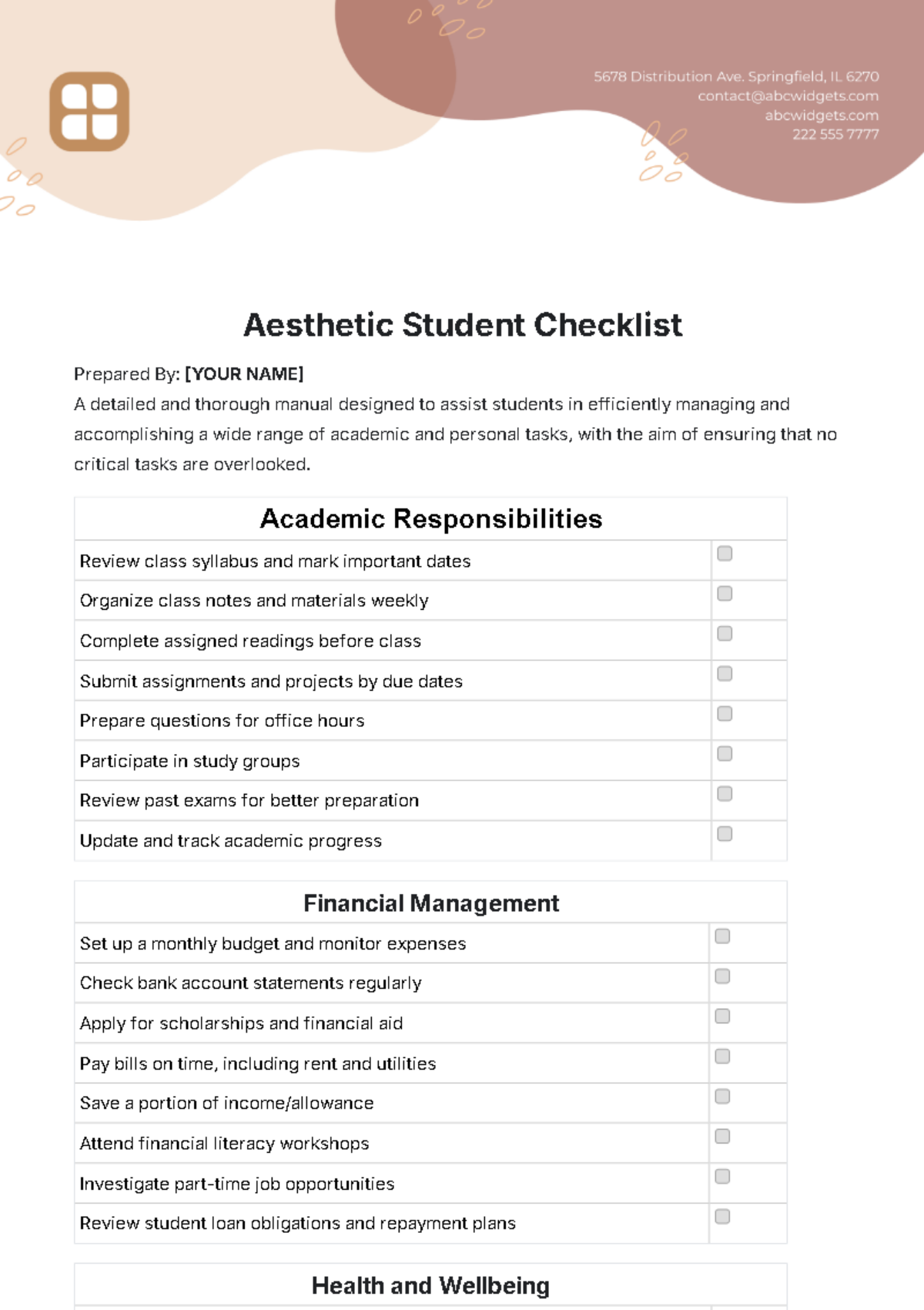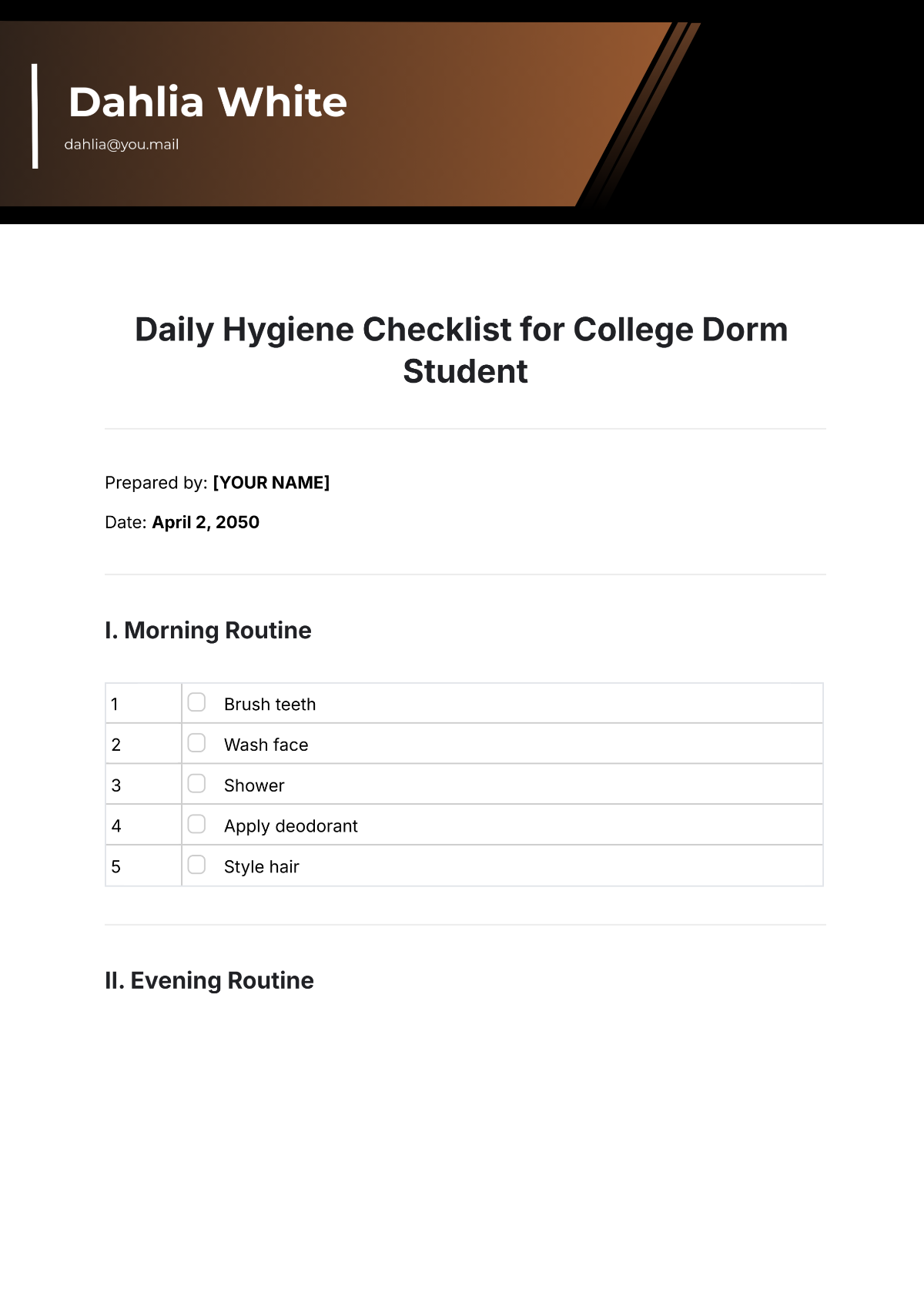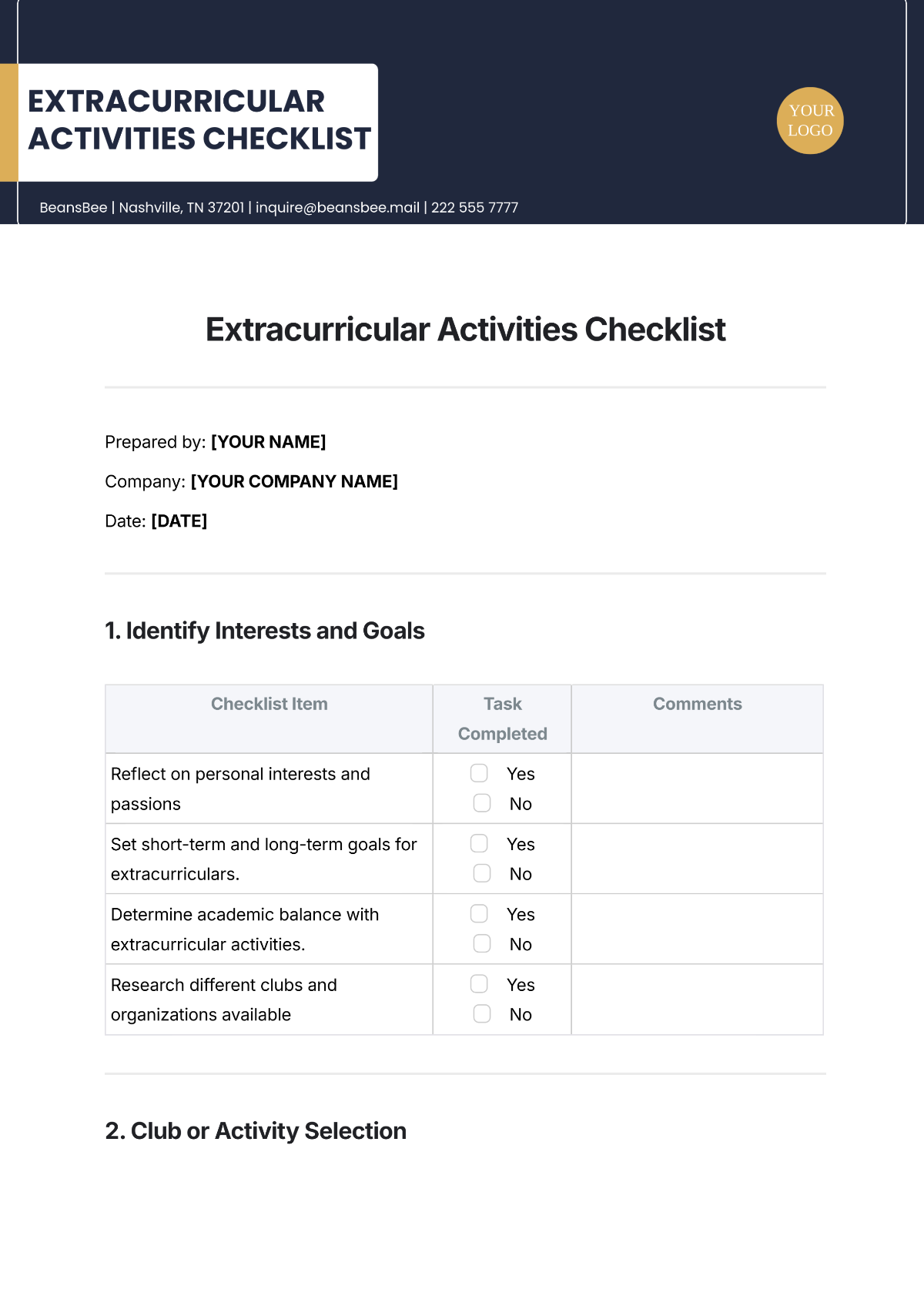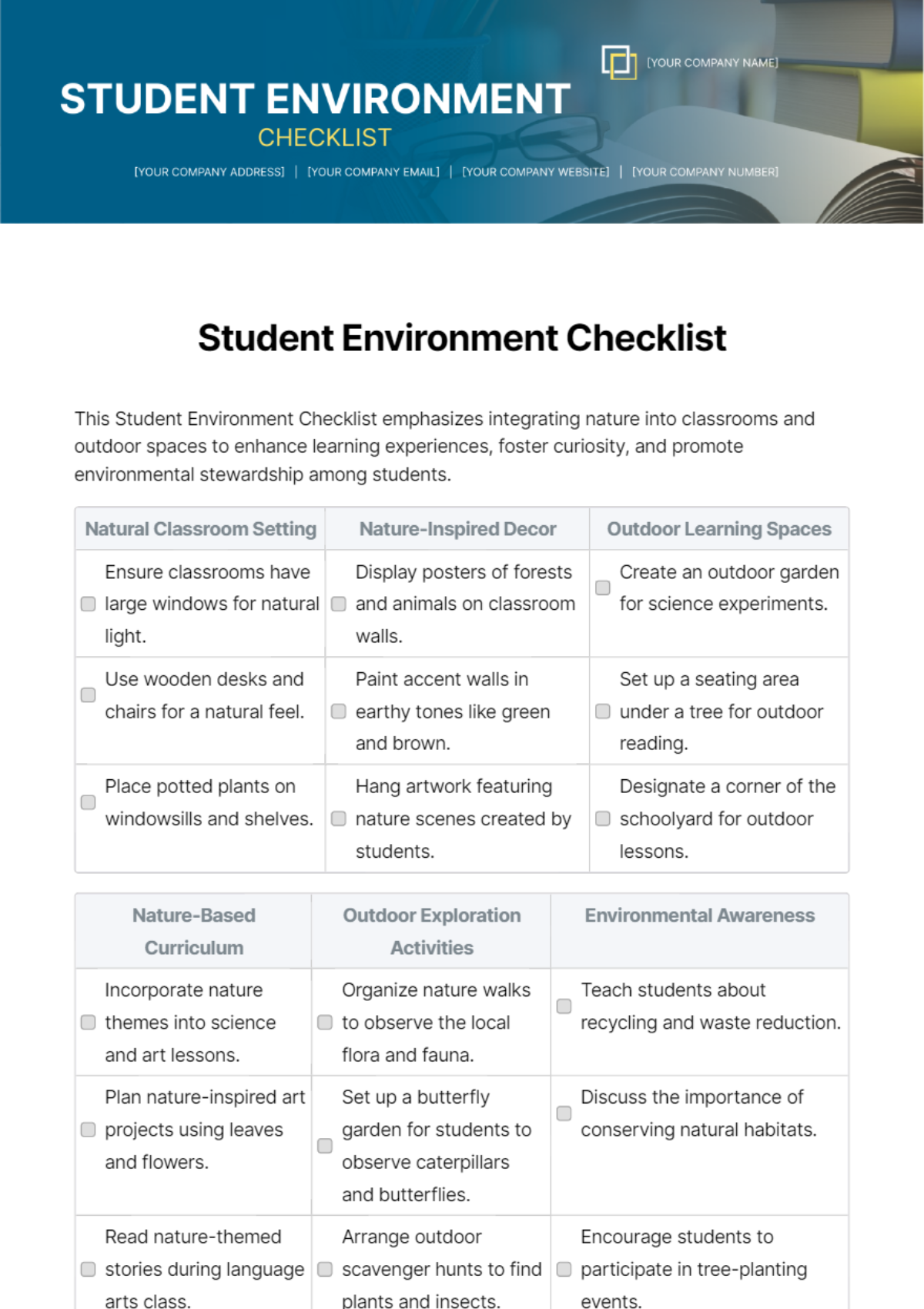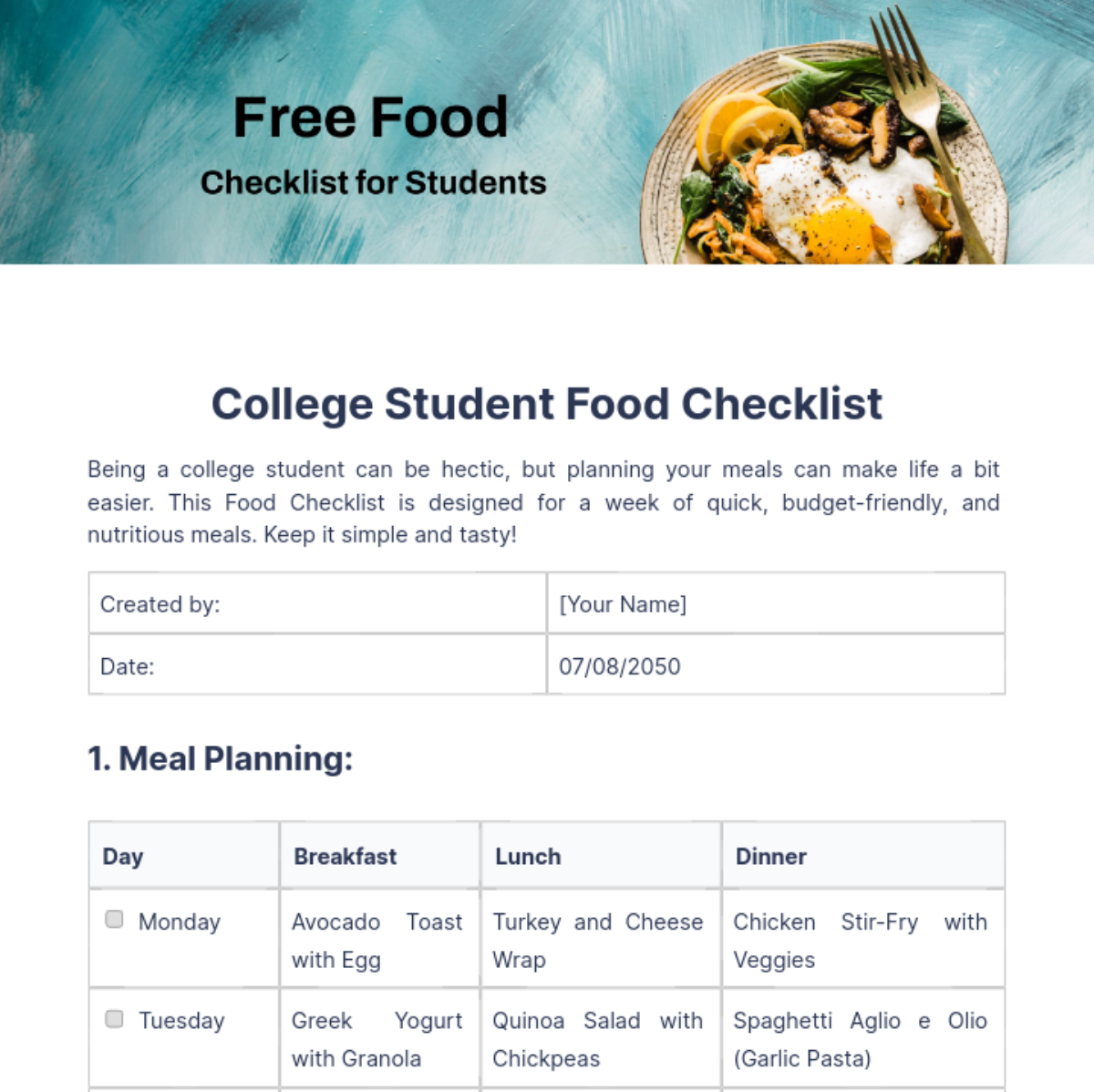SIMPLE STUDENT PROJECT CHECKLIST
Date: [Date]
Prepared By: [Your Name]
This comprehensive Student Project Checklist is designed to guide you through the essential steps of planning, executing, and completing a successful project. It covers various aspects from topic selection to presentation, ensuring nothing is overlooked in the process.
Choosing a Project Topic
Identify areas of personal interest relevant to the project.
Conduct preliminary research to gauge topic availability.
Consult with instructors or mentors for feedback and guidance.
Ensure the topic meets project criteria and objectives.
Consider the feasibility of completing the project within the deadline.
Assess available resources for the chosen topic.
Narrow the topic down to a specific research question.
Receive approval for the chosen topic from relevant authorities.
Planning and Research
Create a detailed project plan with milestones and deadlines.
Conduct an in-depth literature review related to the topic.
Develop a research methodology for data collection.
Identify and access necessary tools and software.
Organize a schedule for regular meetings and updates with the team.
Draft a budget plan for project expenses if necessary.
Request necessary permissions for research, if applicable.
Ensure alignment with ethical research guidelines.
Data Collection and Analysis
Collect data as per the defined research methodology.
Organize and store data for easy access and analysis.
Use appropriate tools for statistical or qualitative data analysis.
Verify data validity and reliability through repeat checks.
Identify patterns, trends, or significant findings from the data.
Interpret results in the context of the research question.
Prepare visual aids to represent data findings effectively.
Seek peer review or feedback on the data analysis process.
Writing and Documentation
Develop an outline for the project report or paper.
Write drafts of each section of the report, starting with the introduction.
Incorporate visuals such as graphs, charts, and tables.
Ensure all sources are cited appropriately following the required style guide.
Write a comprehensive conclusion summarizing the research findings.
Proofread and edit the document for clarity and coherence.
Format the document according to academic standards.
Submit the final draft for advisor or team feedback.
Project Presentation
Prepare a presentation layout based on project highlights.
Select or create visuals to accompany key points.
Organize a narrative to narrate the project journey.
Practice delivering the presentation to ensure confidence and clarity.
Ensure all technical equipment is functioning and ready.
Incorporate a question-and-answer session in the presentation.
Invite peers to a test run for feedback.
Be prepared to explain methodologies and defend findings.
Final Review and Submission
Complete all necessary revisions based on feedback received.
Ensure all parts of documentation are accurate and complete.
Perform a final proofread for any grammatical or typographical errors.
Check alignment with submission guidelines and requirements.
Prepare all supplementary materials for submission.
Make copies of the final project for personal records.
Submit the project before the deadline through the designated platform.
Confirm receipt of submission with the appropriate authority.
Post-Project Reflection
Reflect on the project process and outcomes.
Identify strengths and areas of improvement.
Gather feedback from instructors and peers for learning purposes.
Document lessons learned and skills gained during the project.
Thank mentors, advisors, and team members for their support.
Consider publishing or presenting findings at conferences or journals.
Update personal or academic profiles with project accomplishments.
Plan for future projects using insights gained from this experience.
Additional Reminders
Always back up your work regularly to prevent data loss.
Maintain regular communication with your project advisor for guidance.
Be open to incorporating constructive criticism into your work.
Manage time wisely to avoid last-minute rush and stress.
Stay organized with both hard copy and digital formats of your work.
Engage in continuous learning and skill development related to the project.
Balance project work with other academic or personal commitments effectively.
Celebrate your accomplishments and take pride in completing your project.
